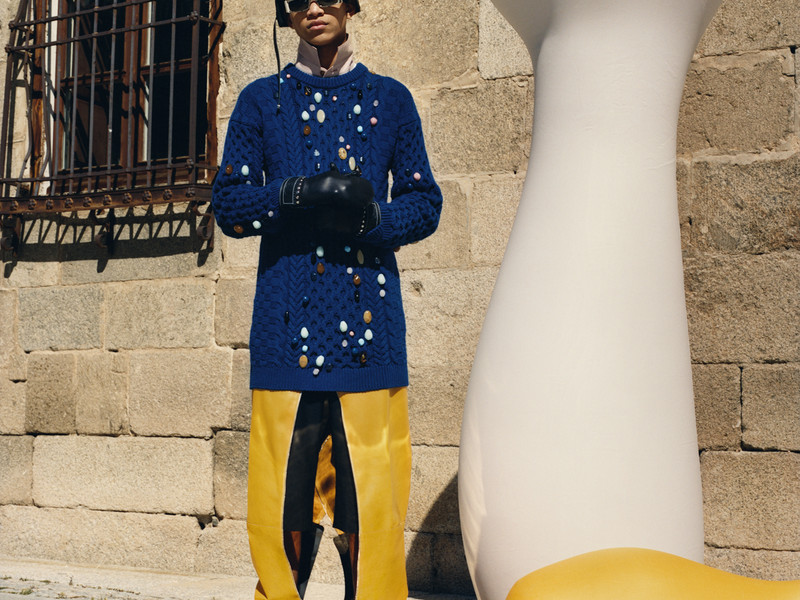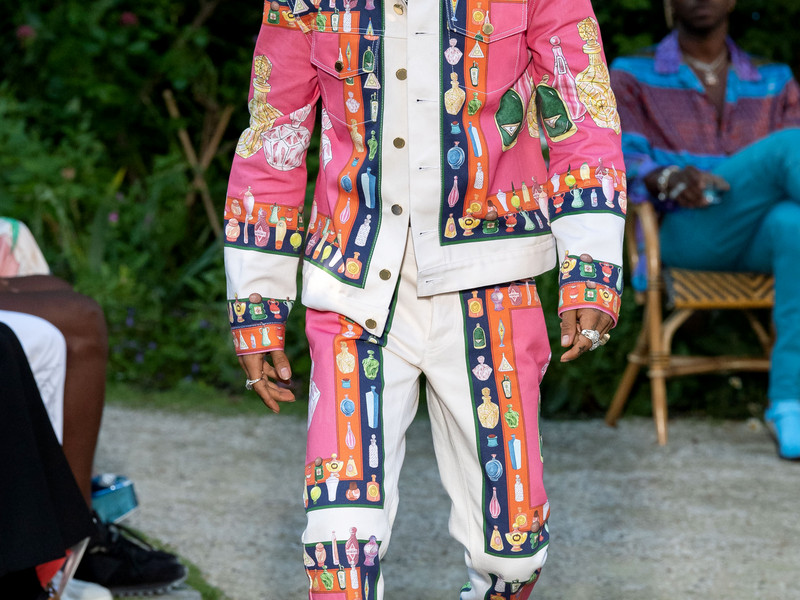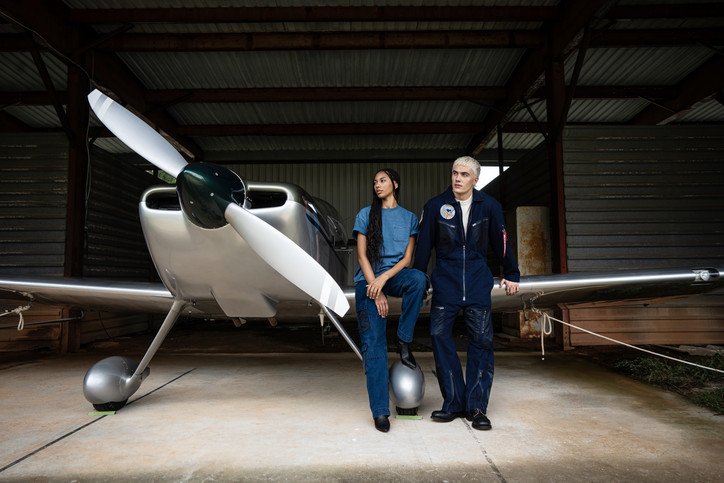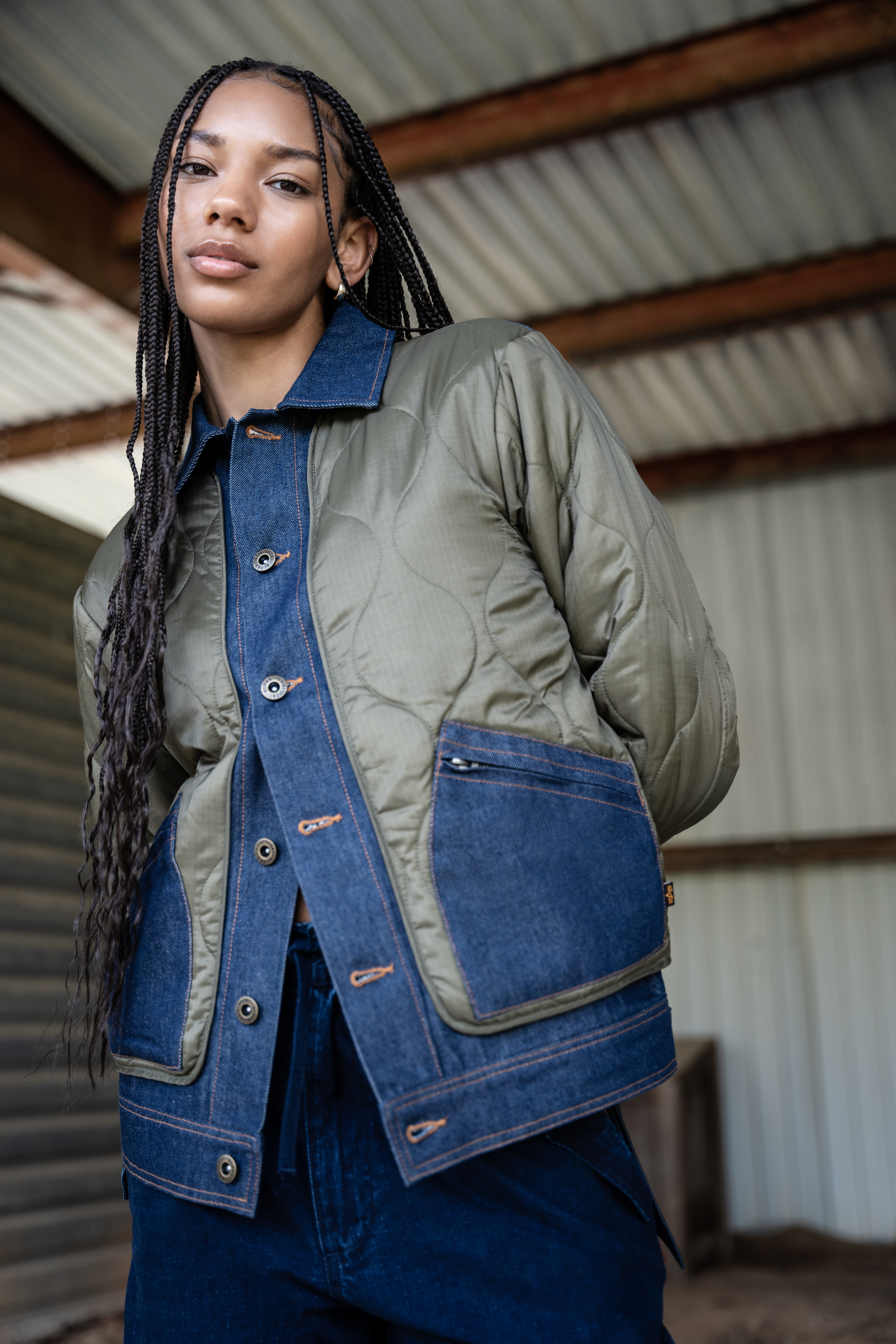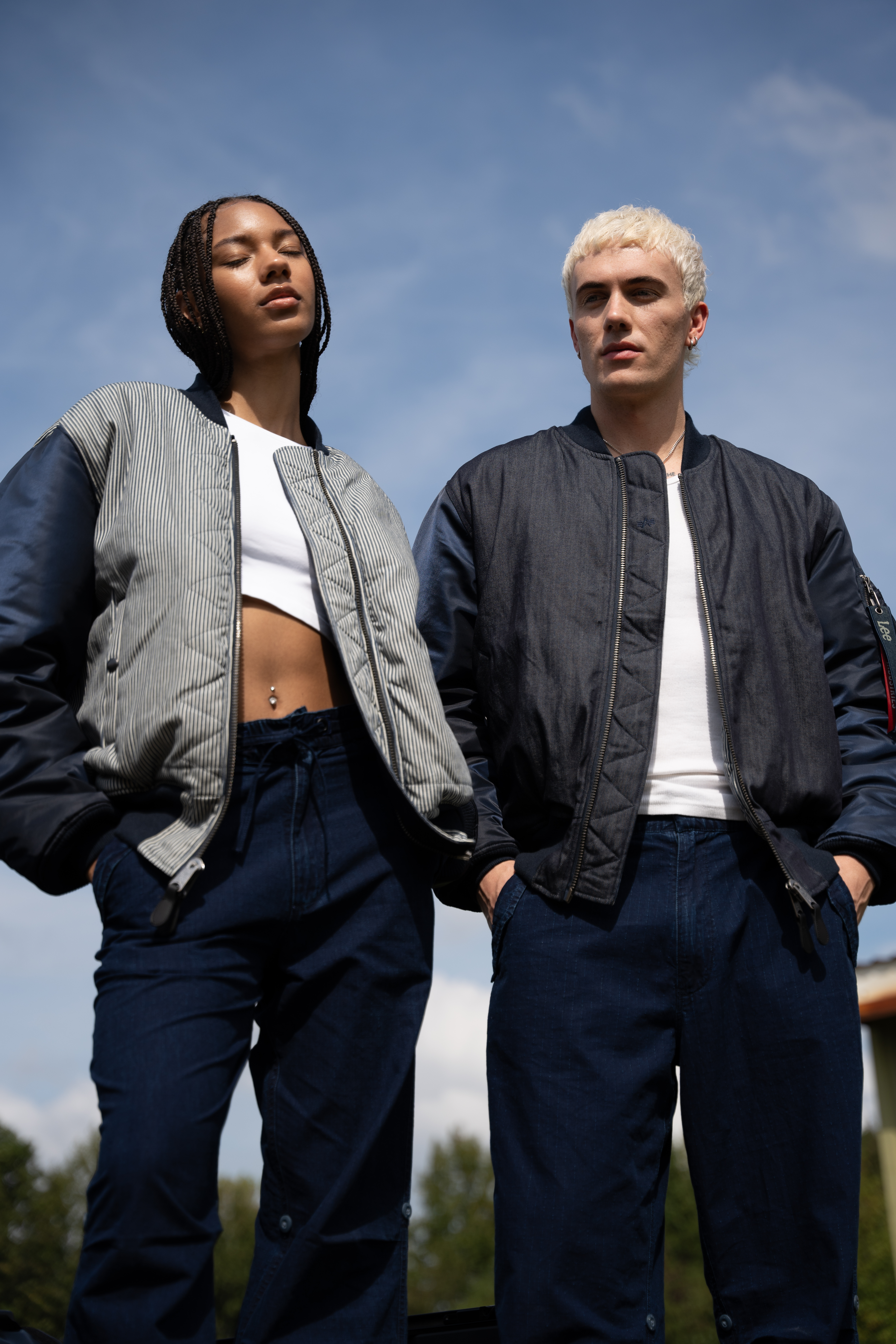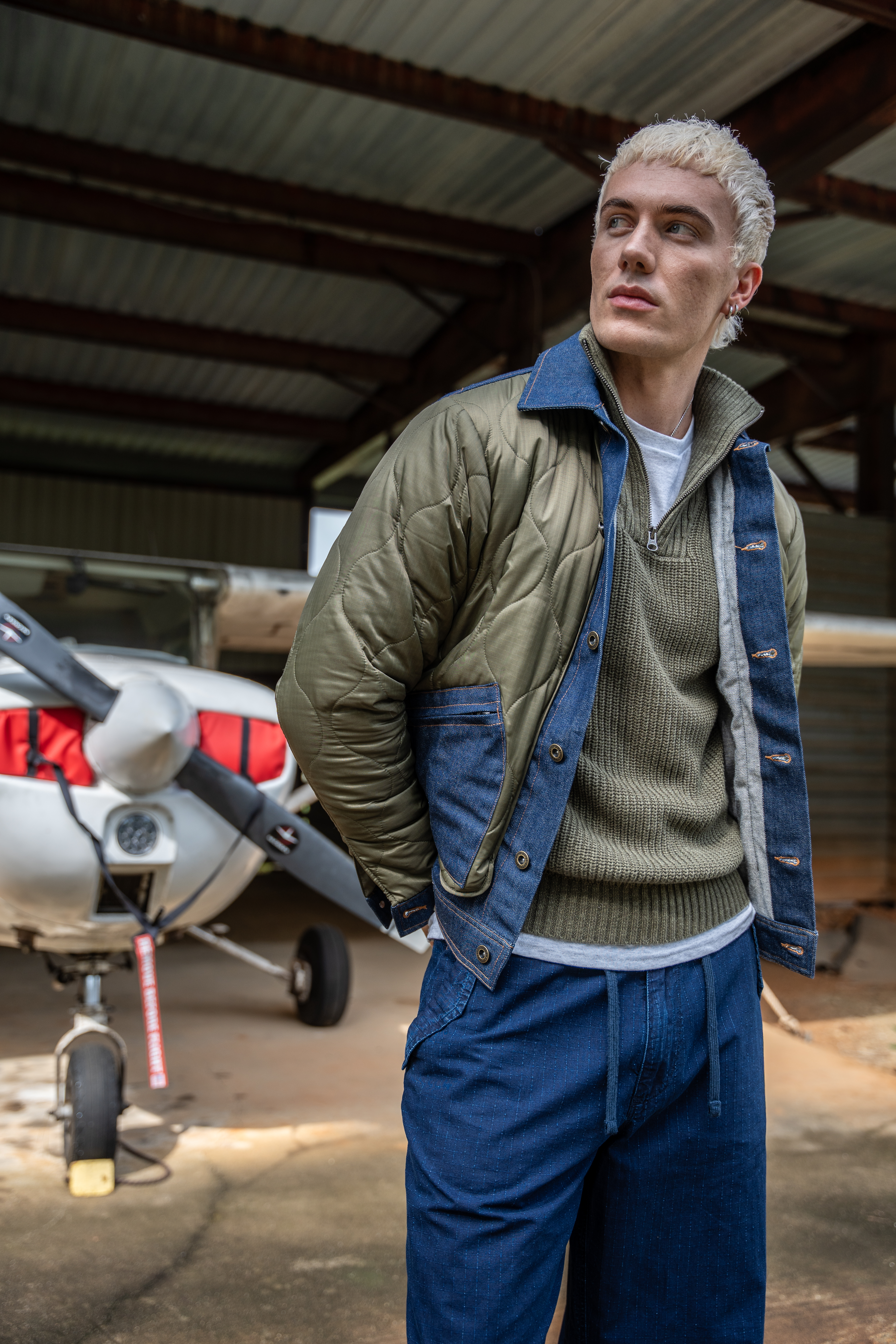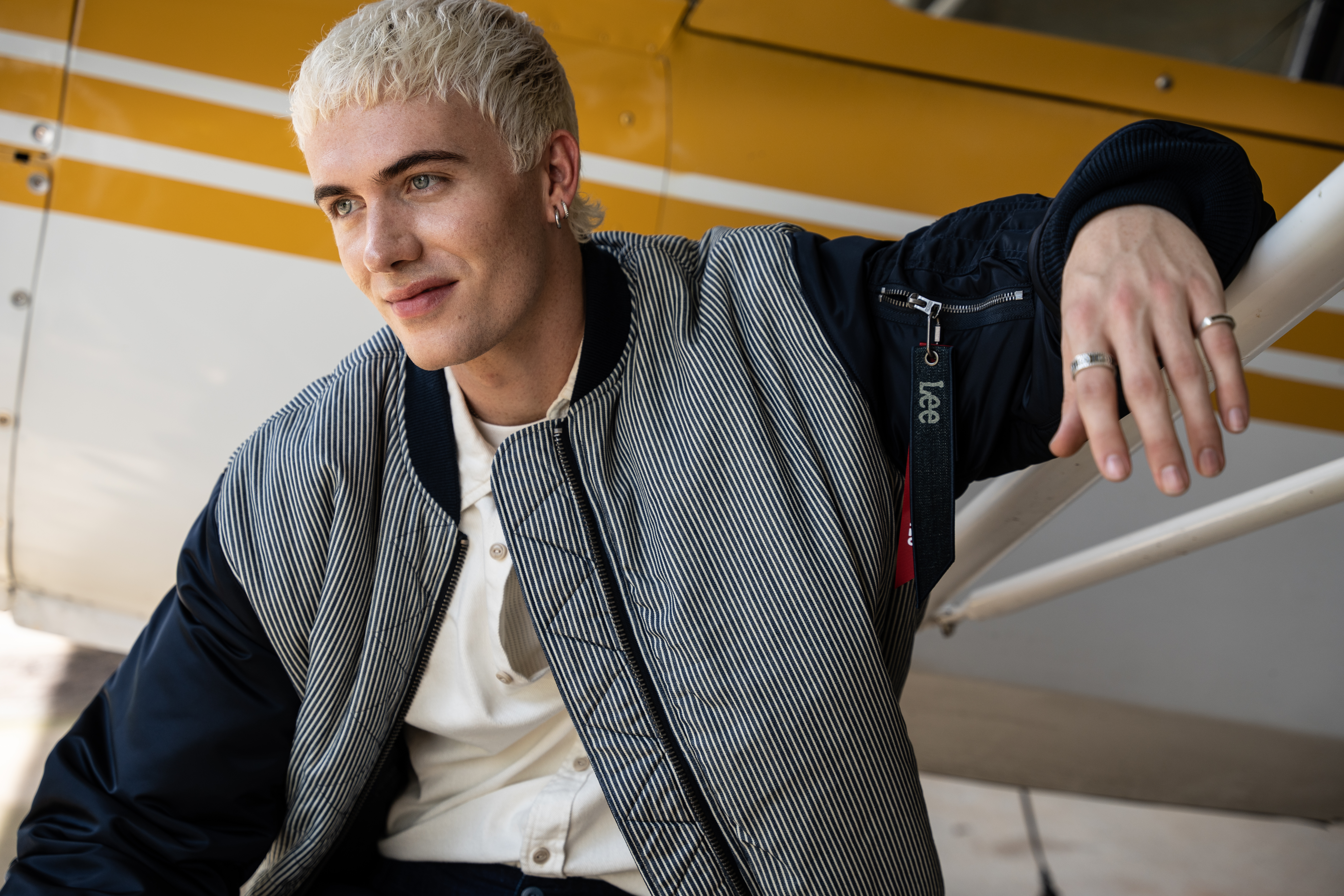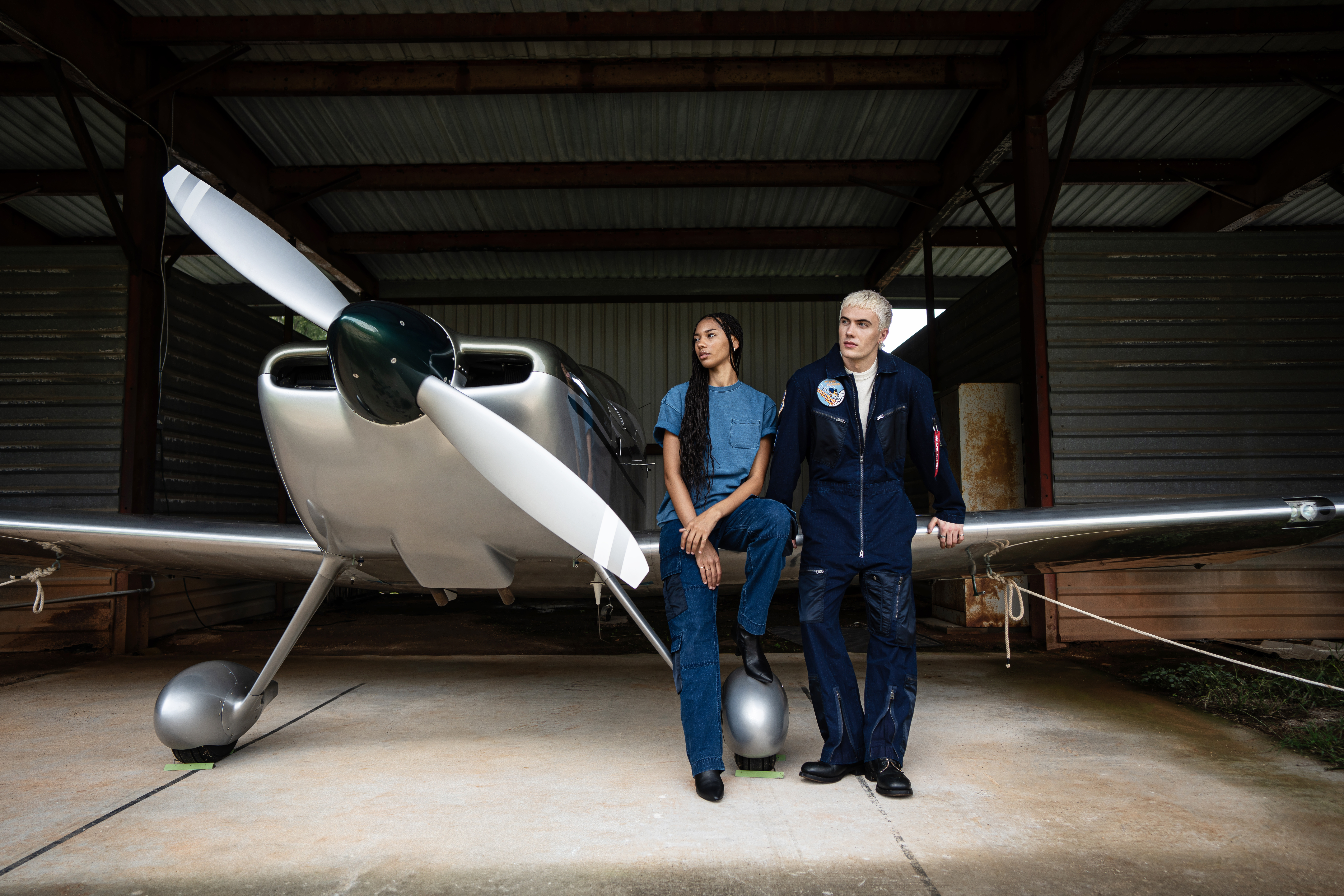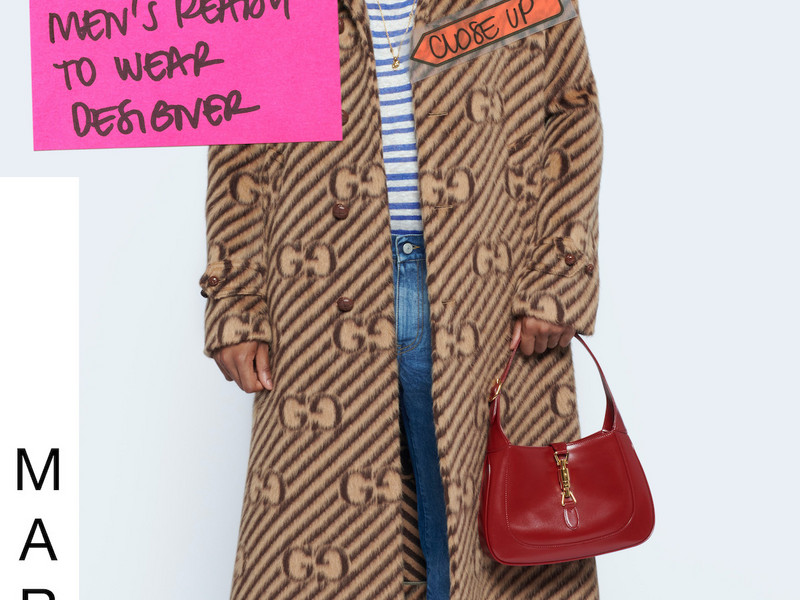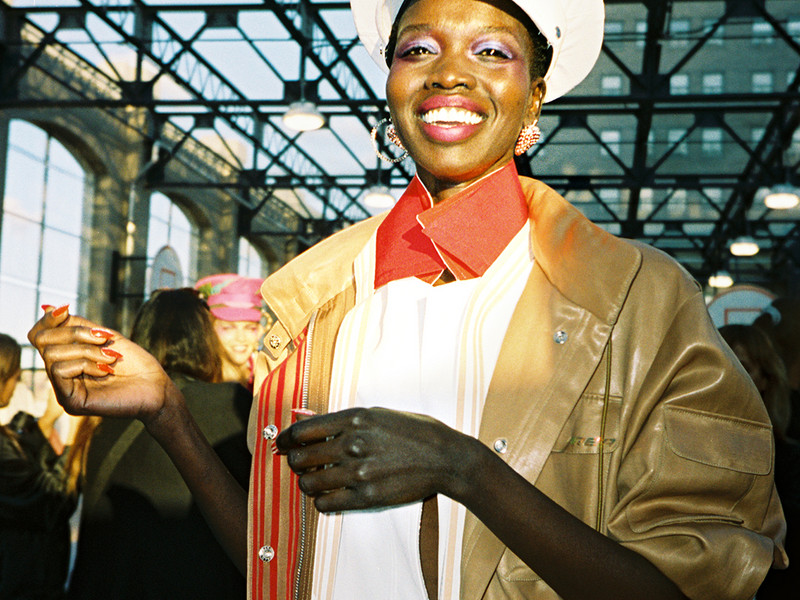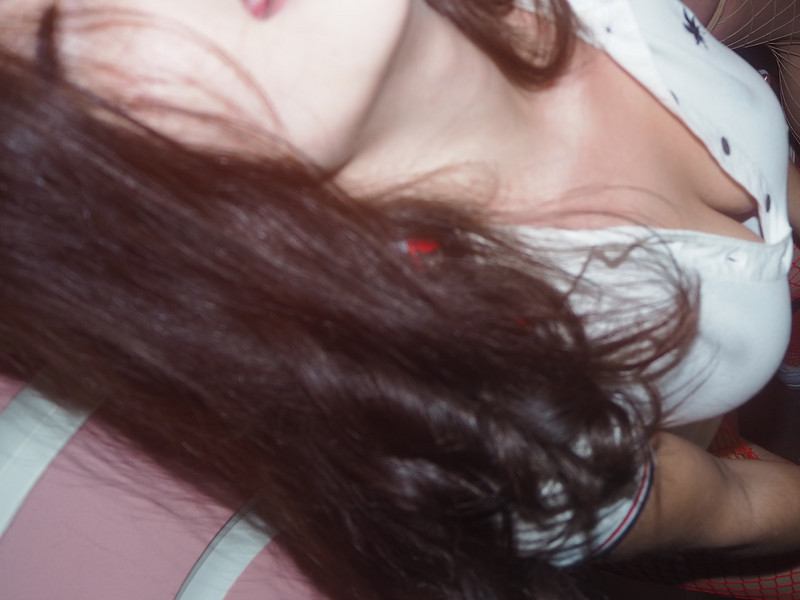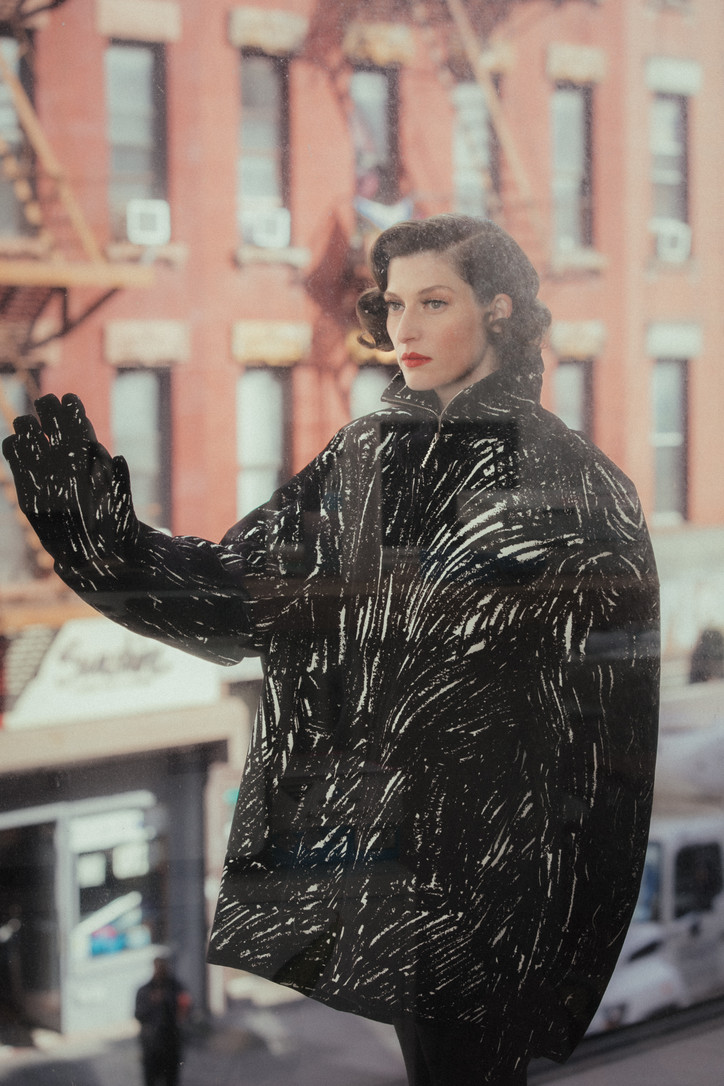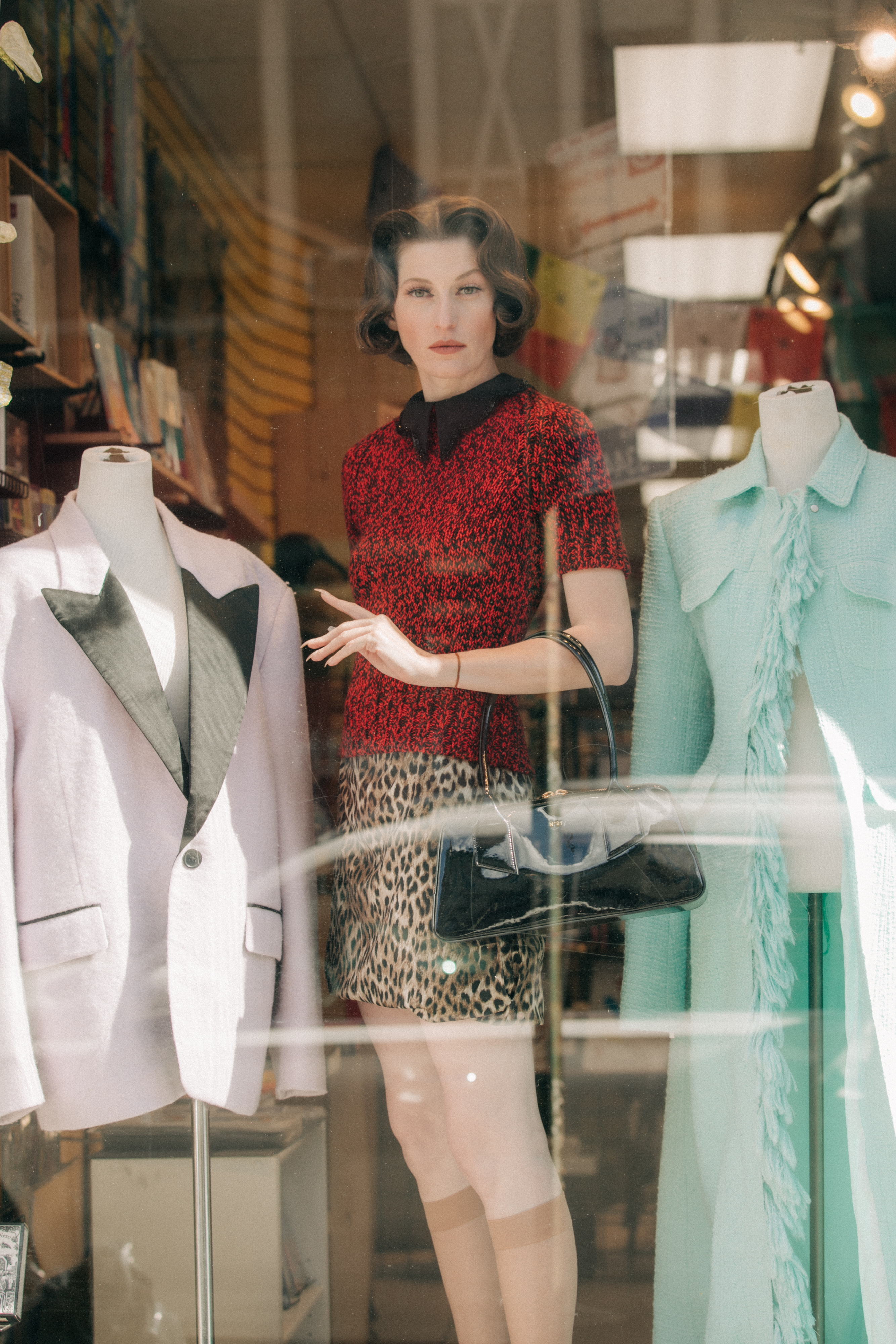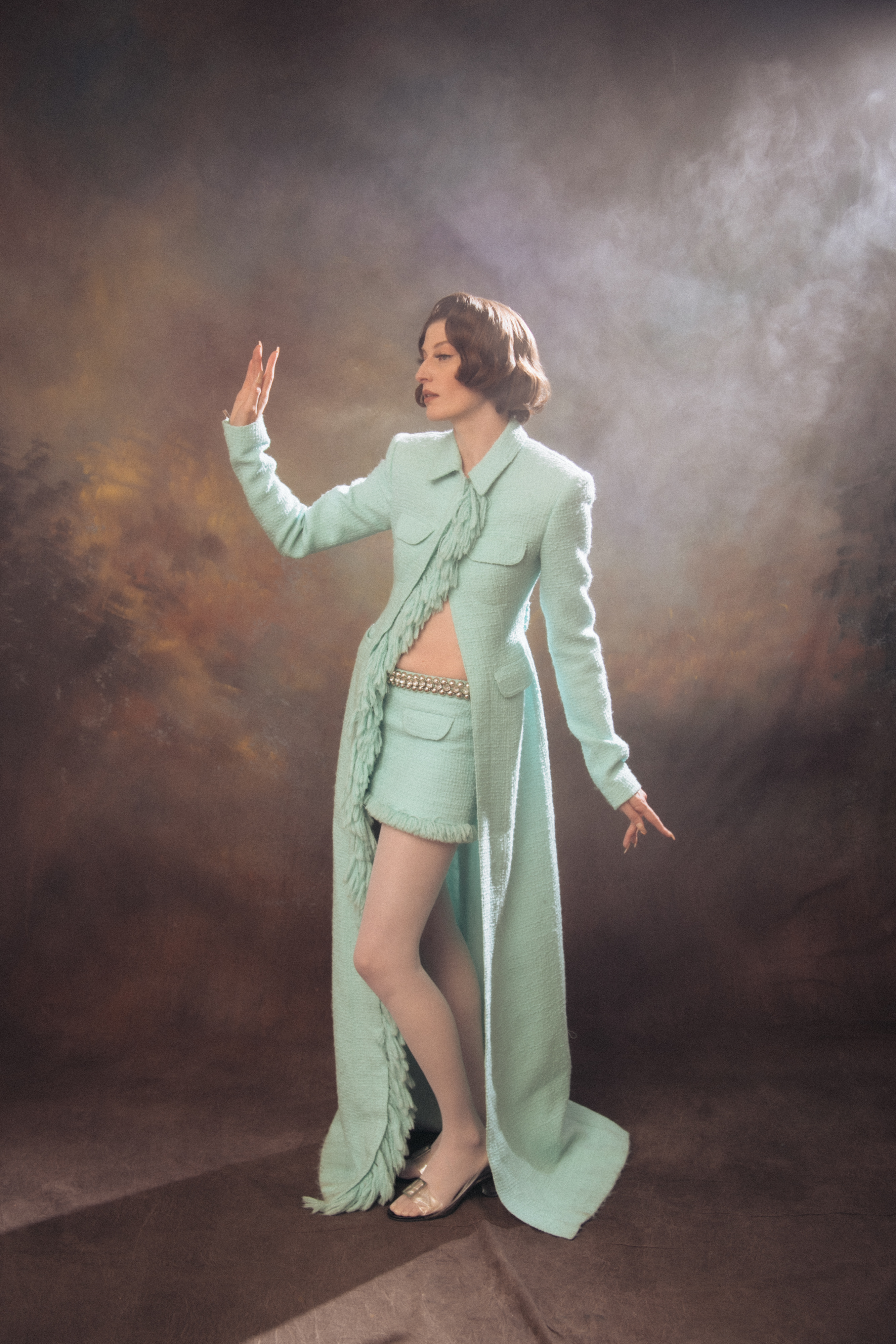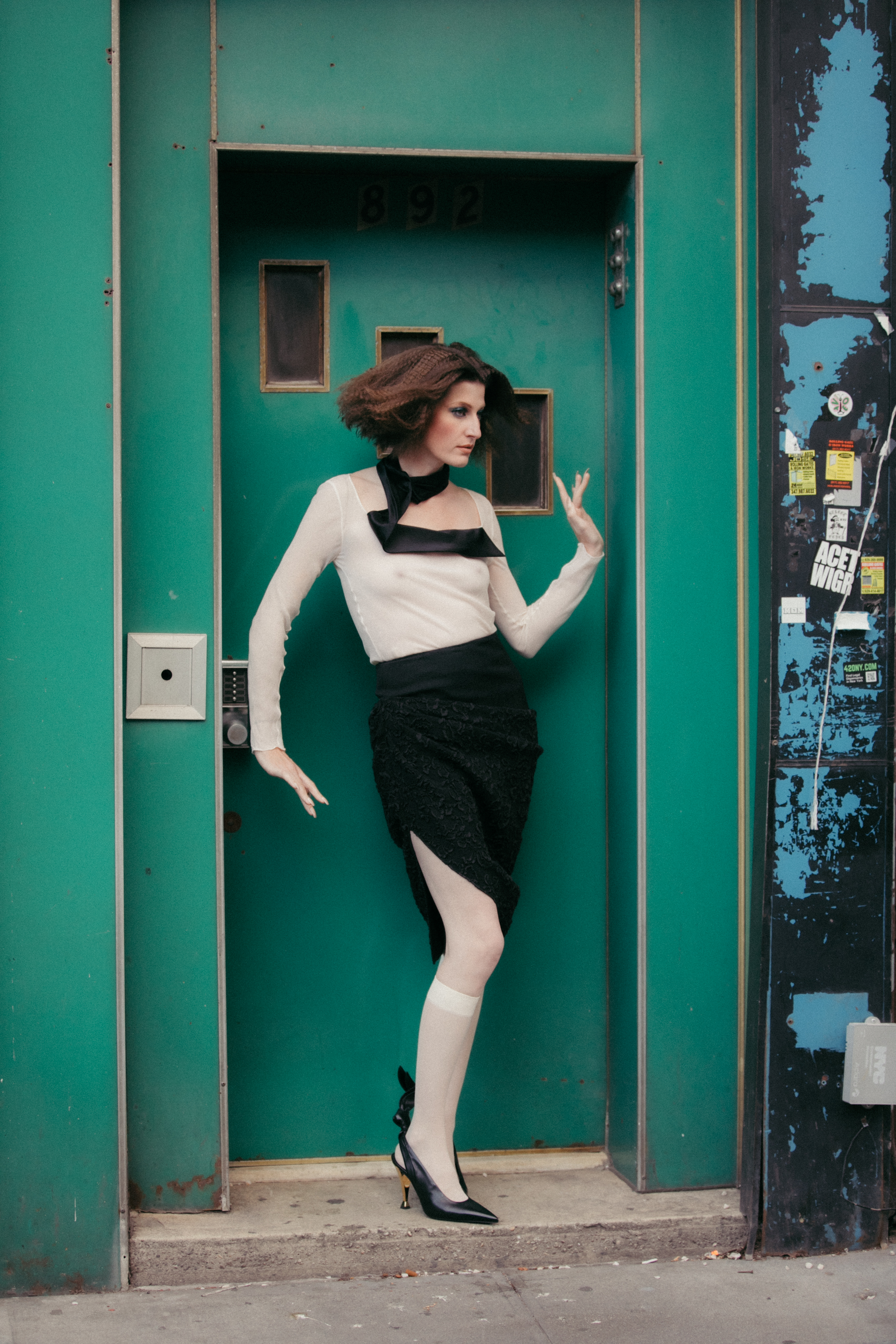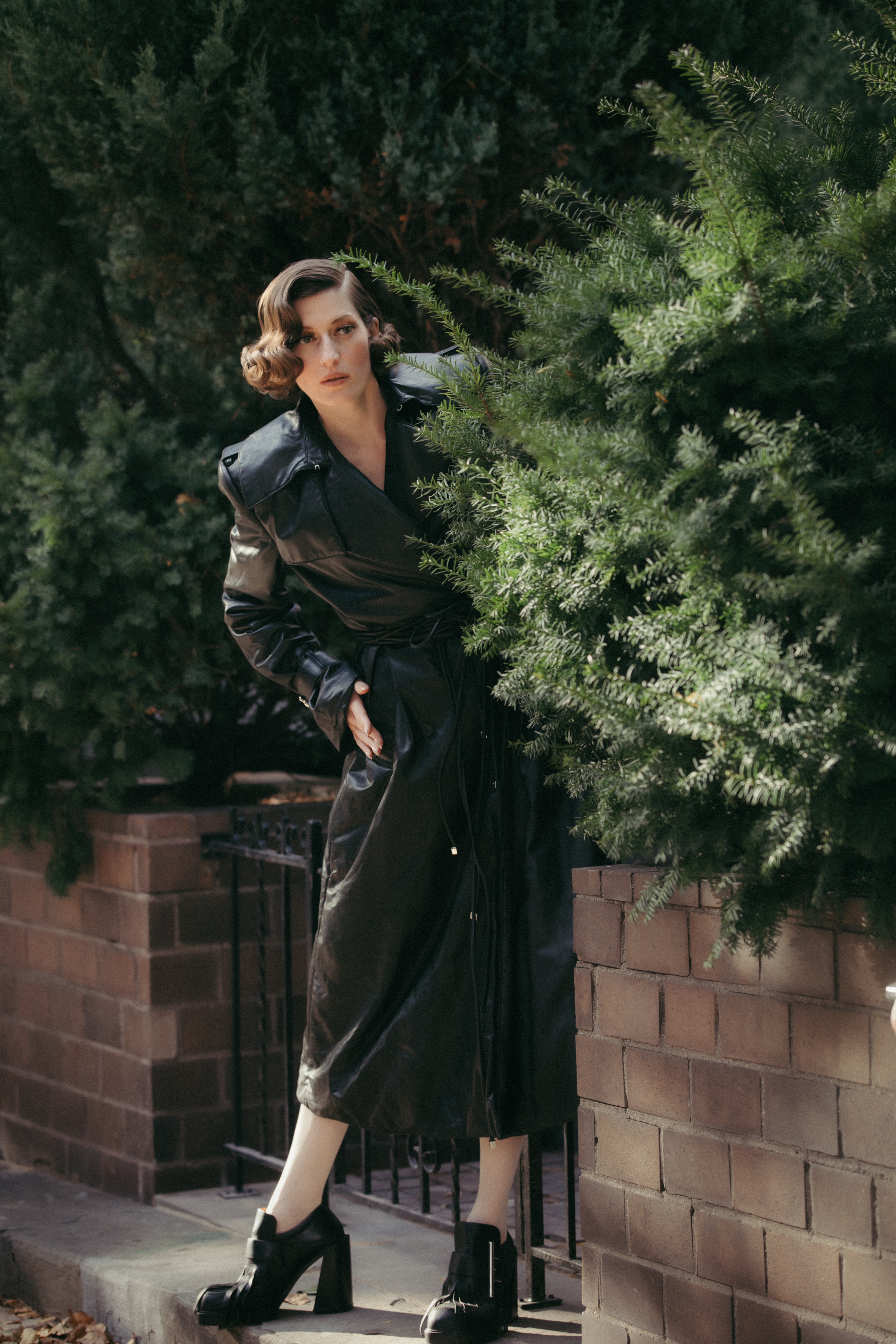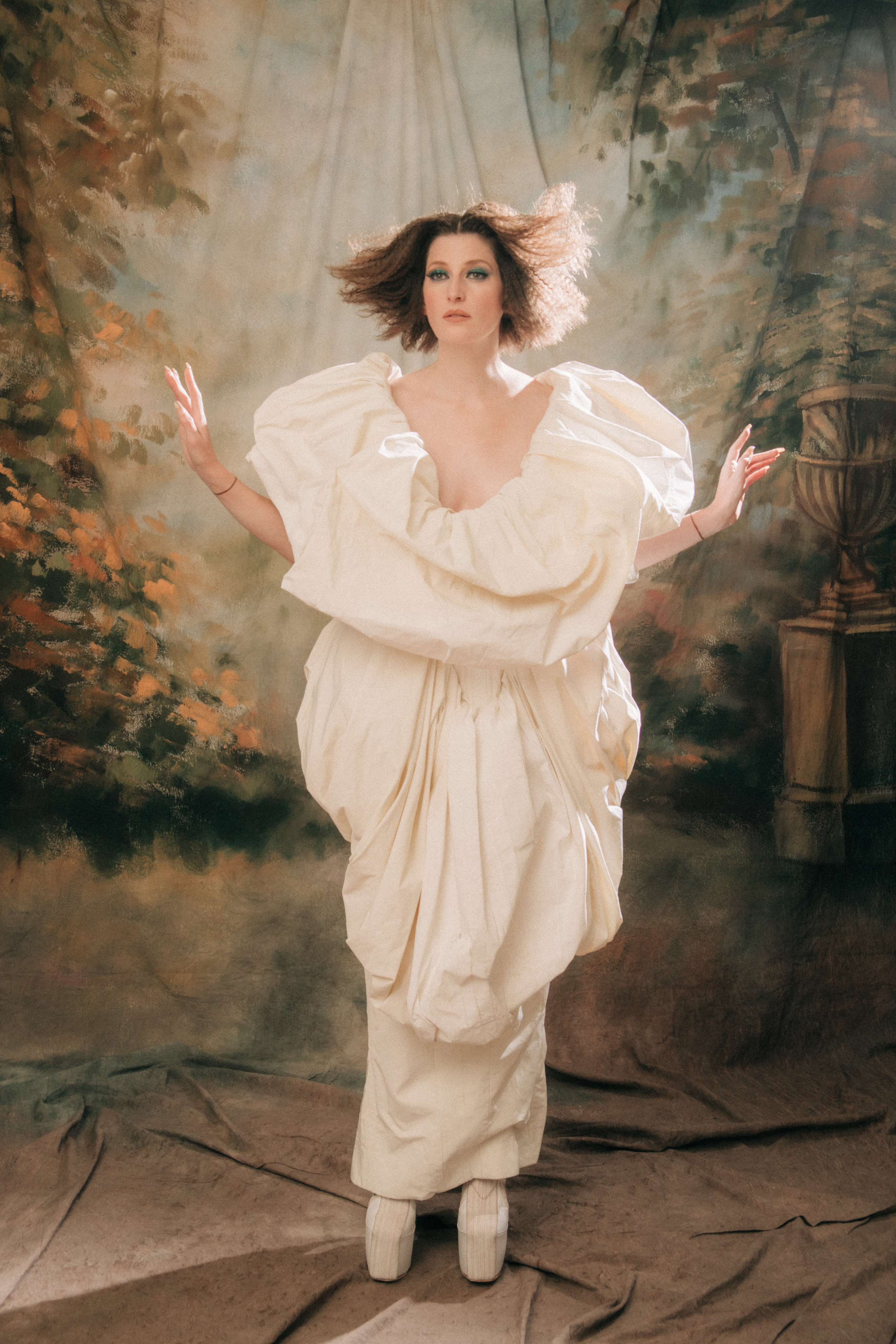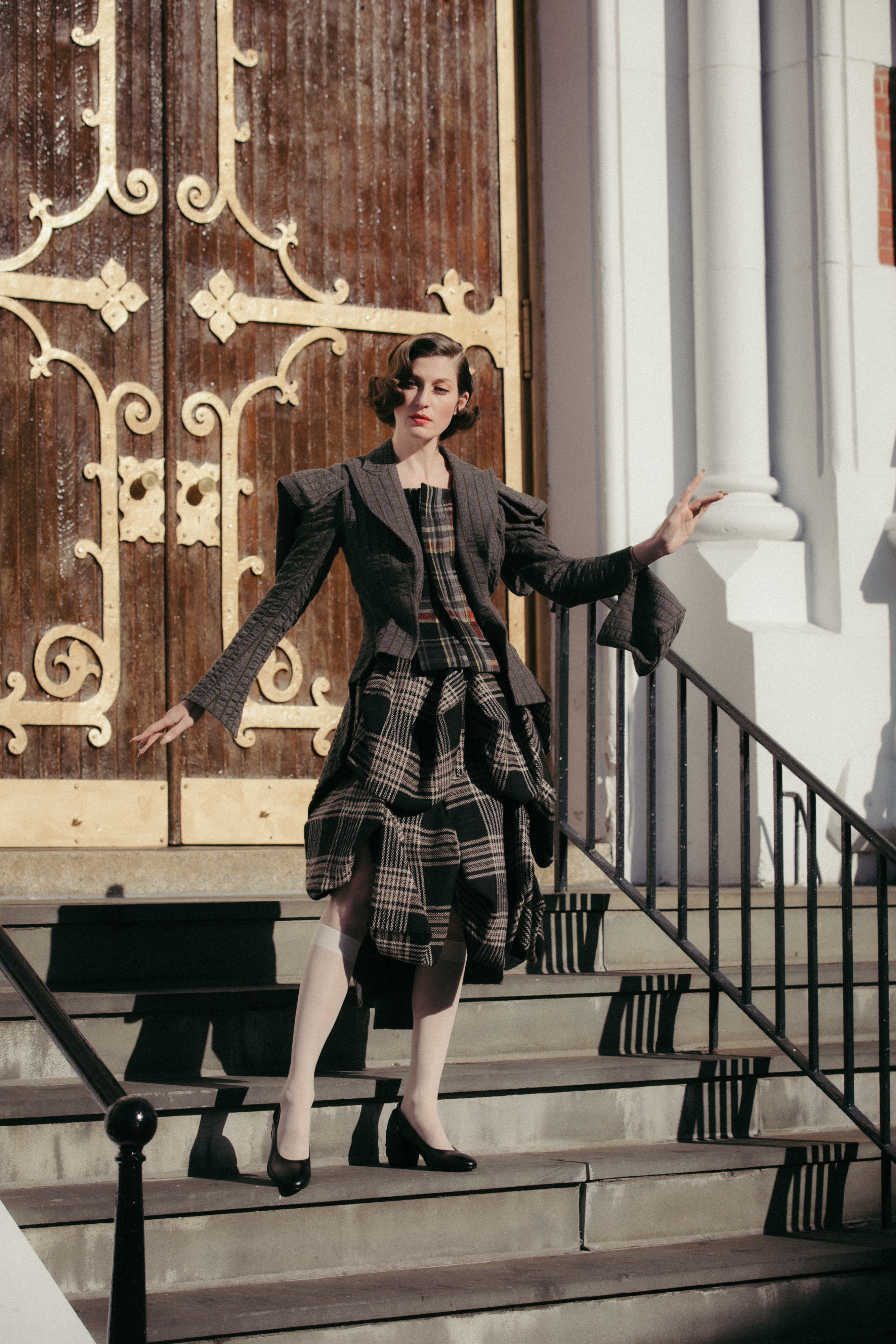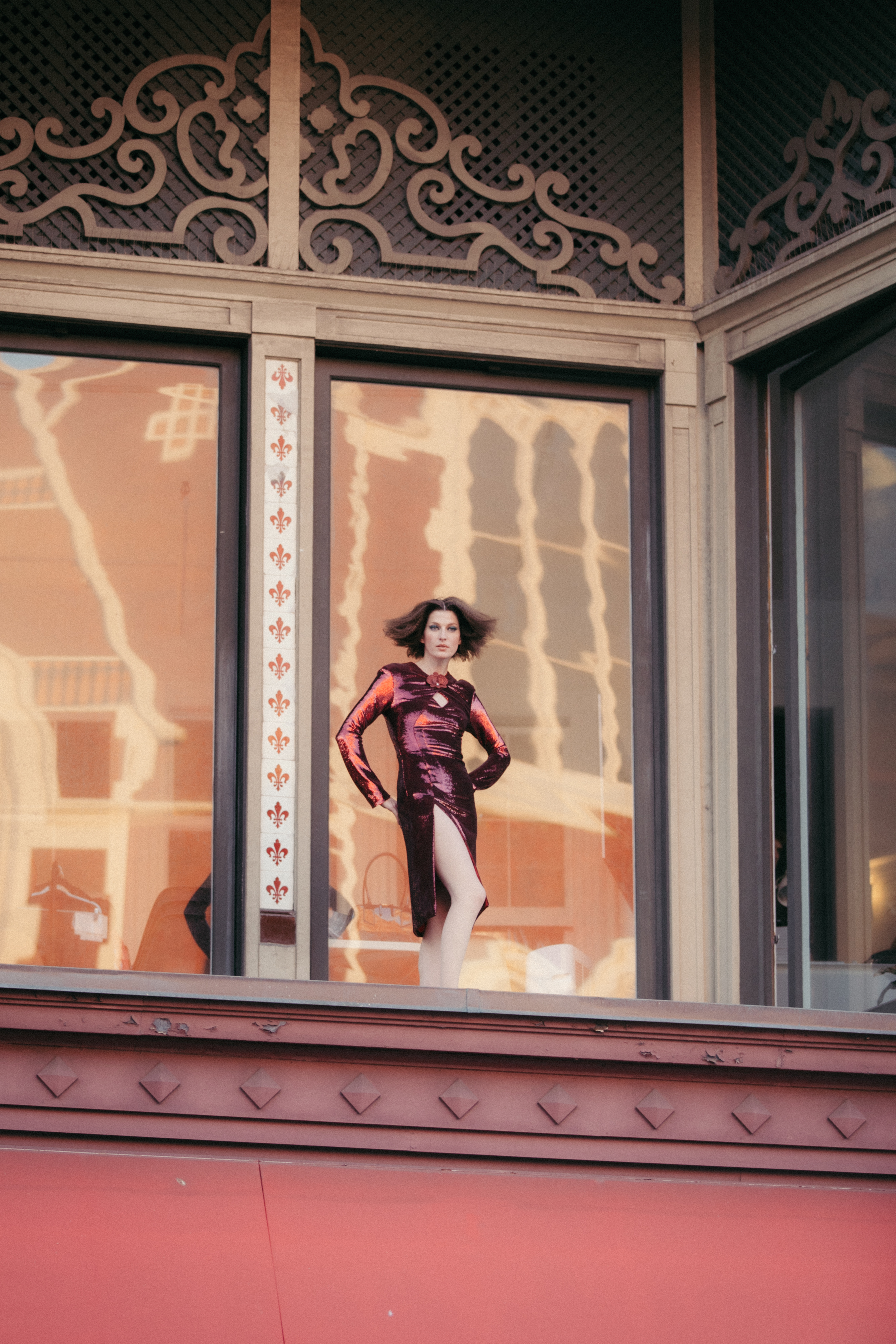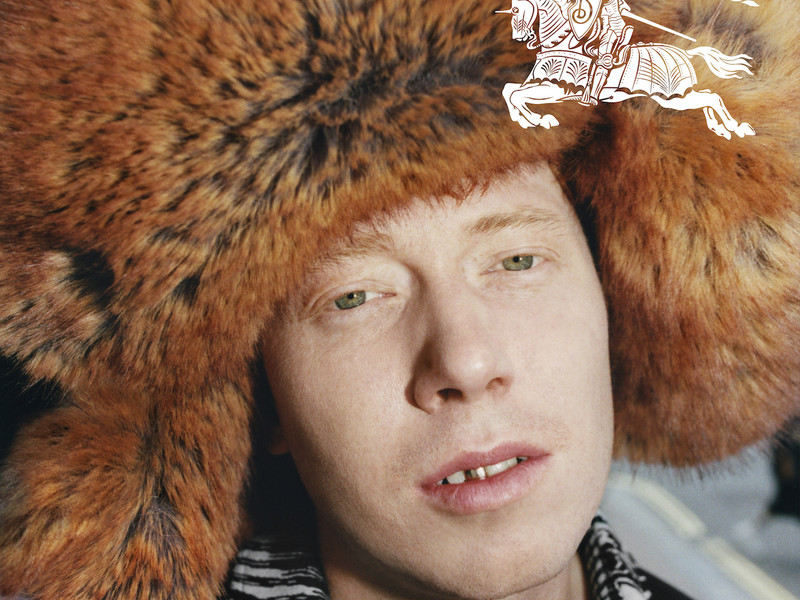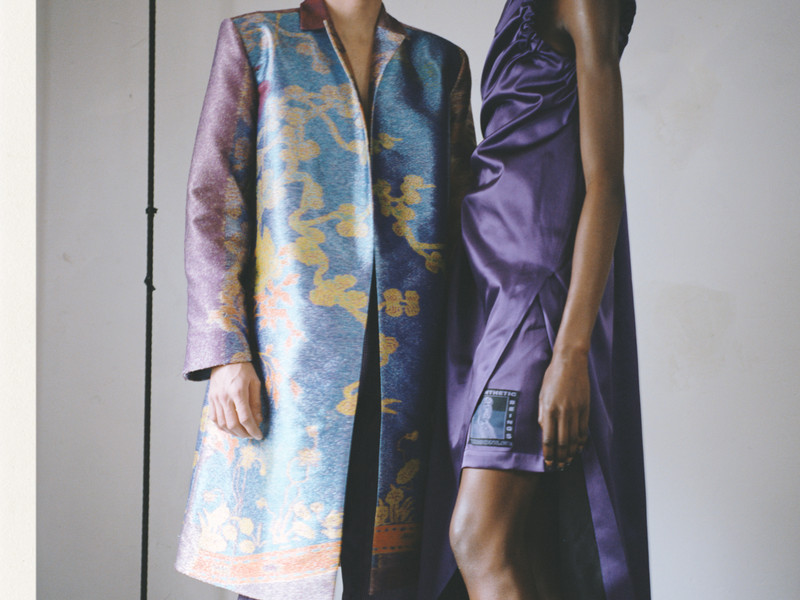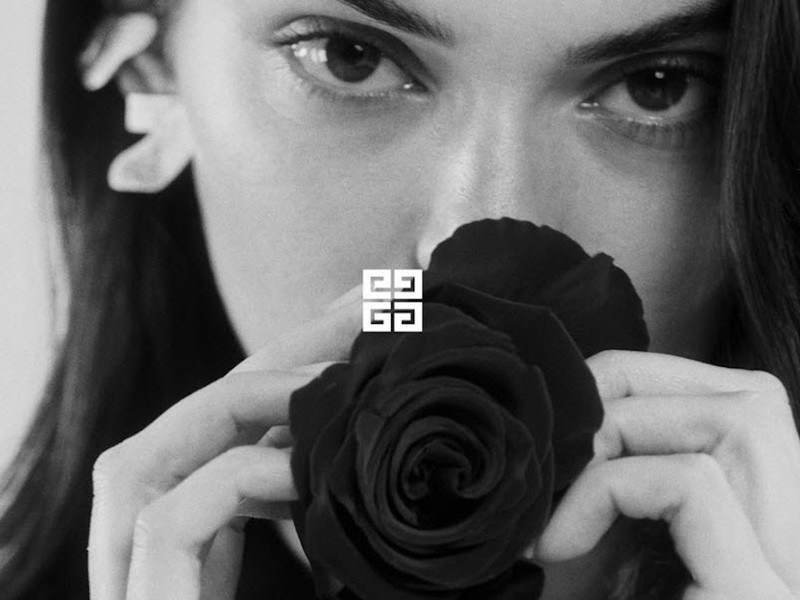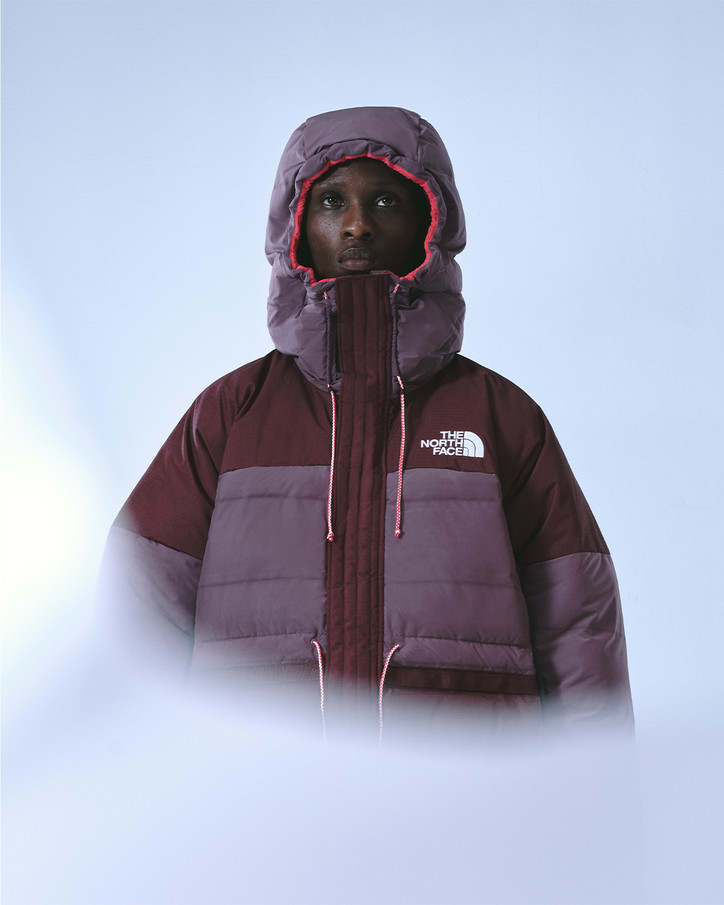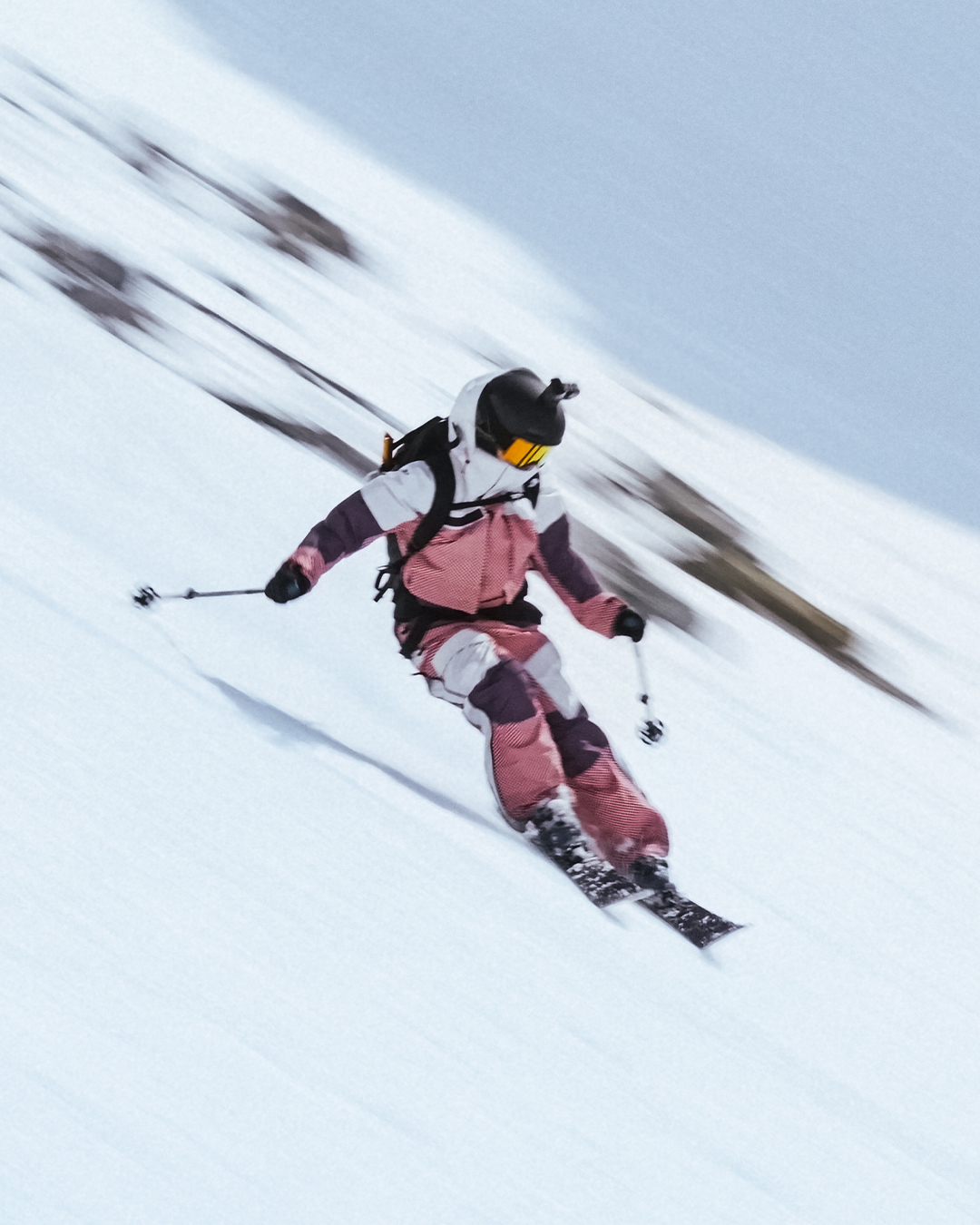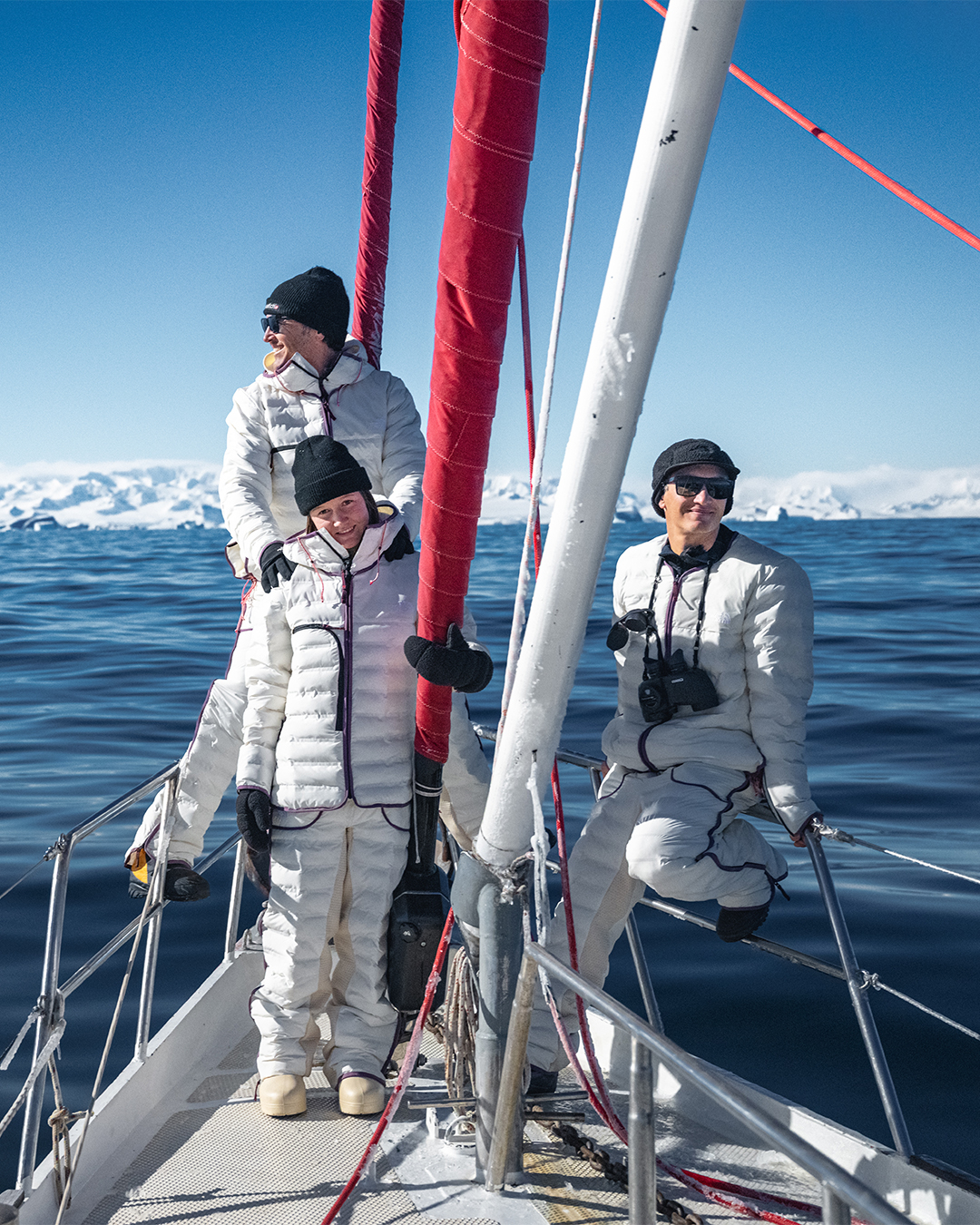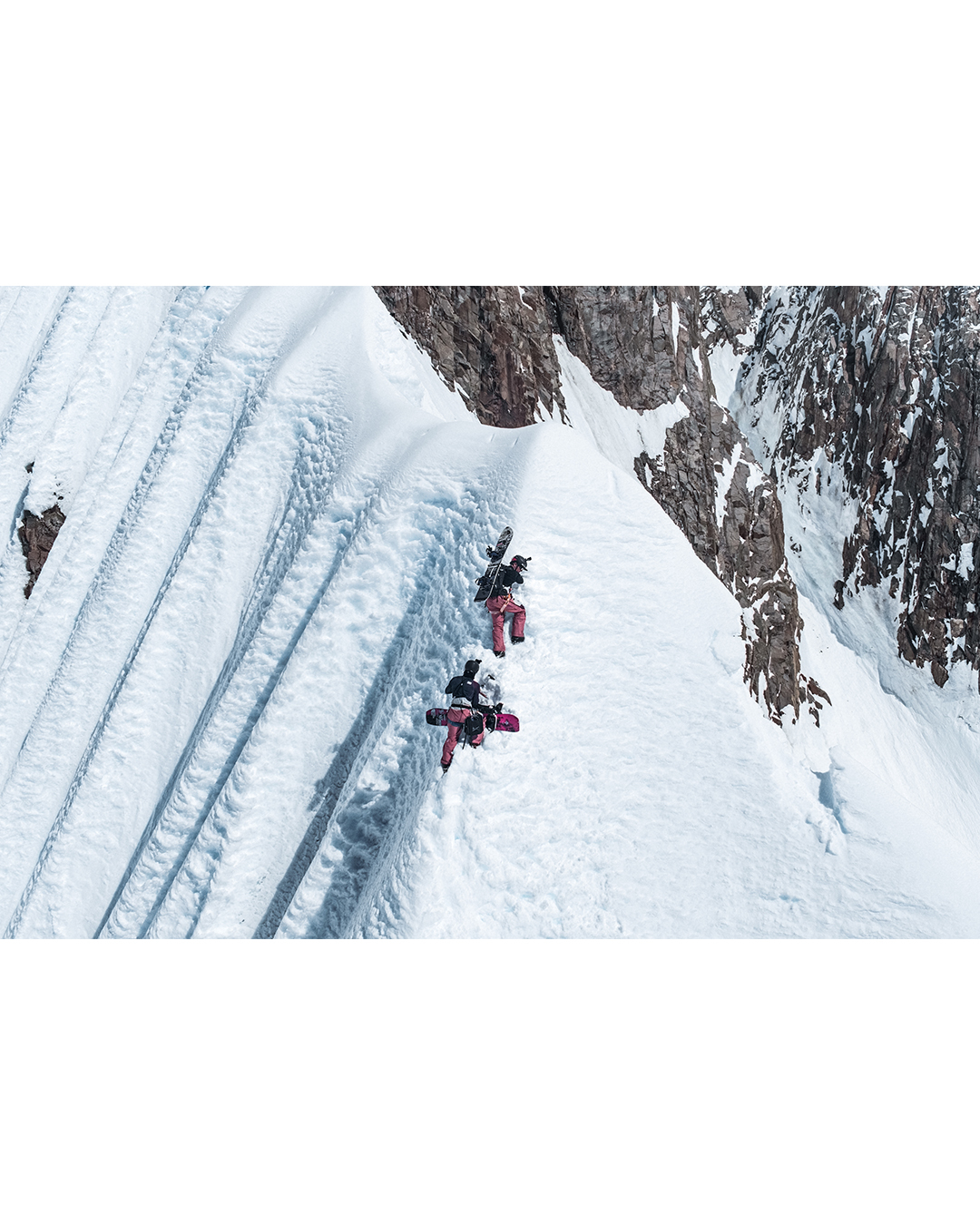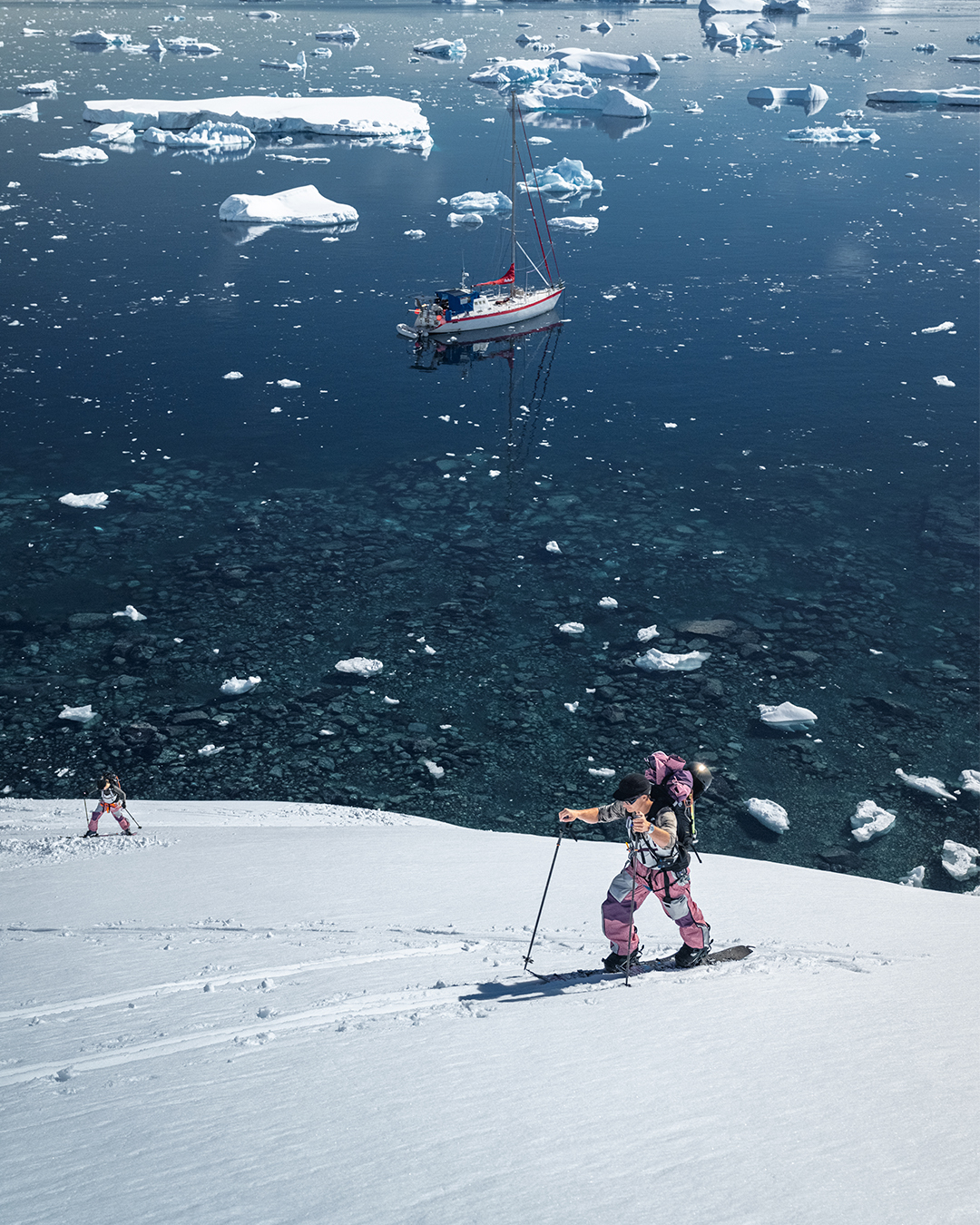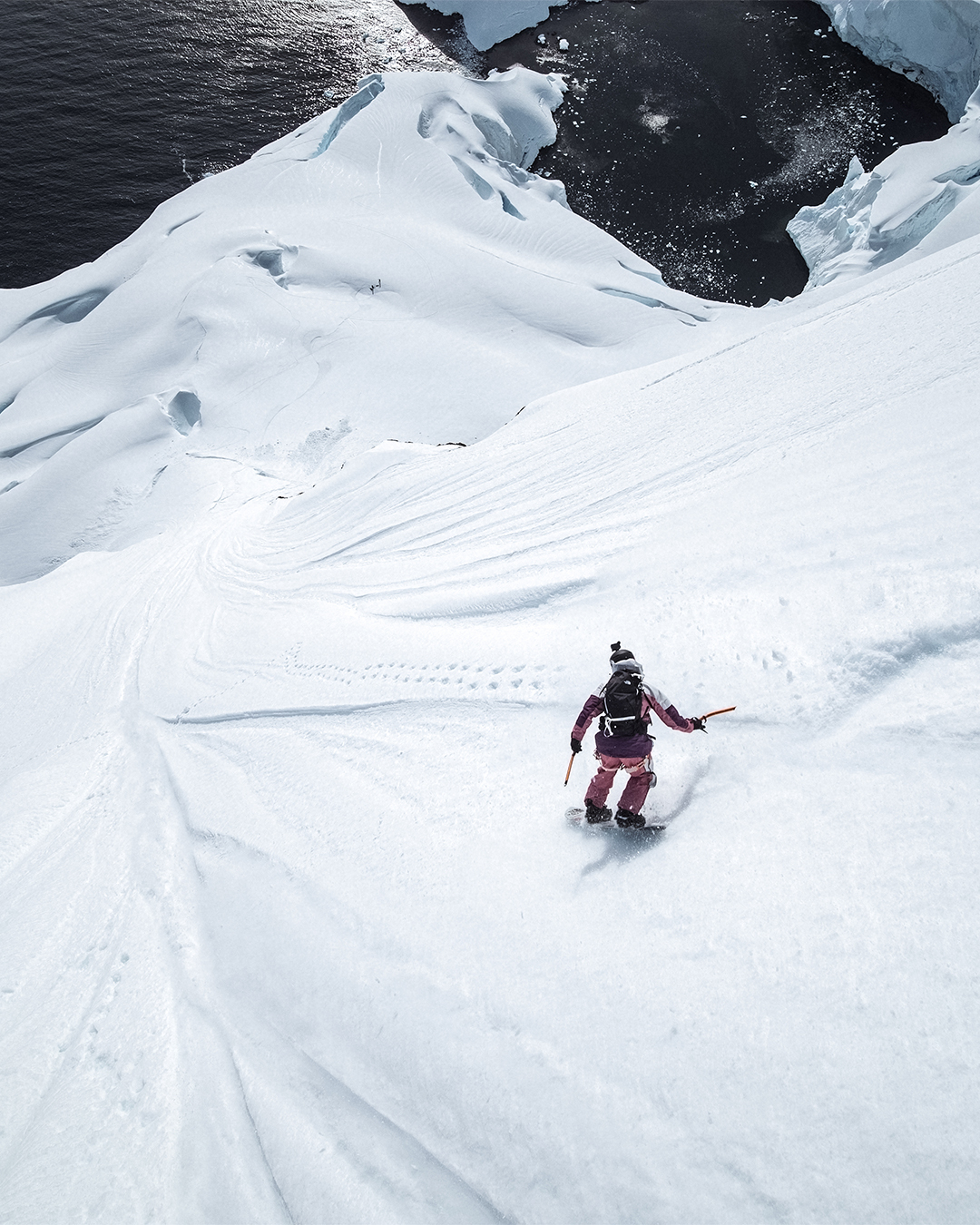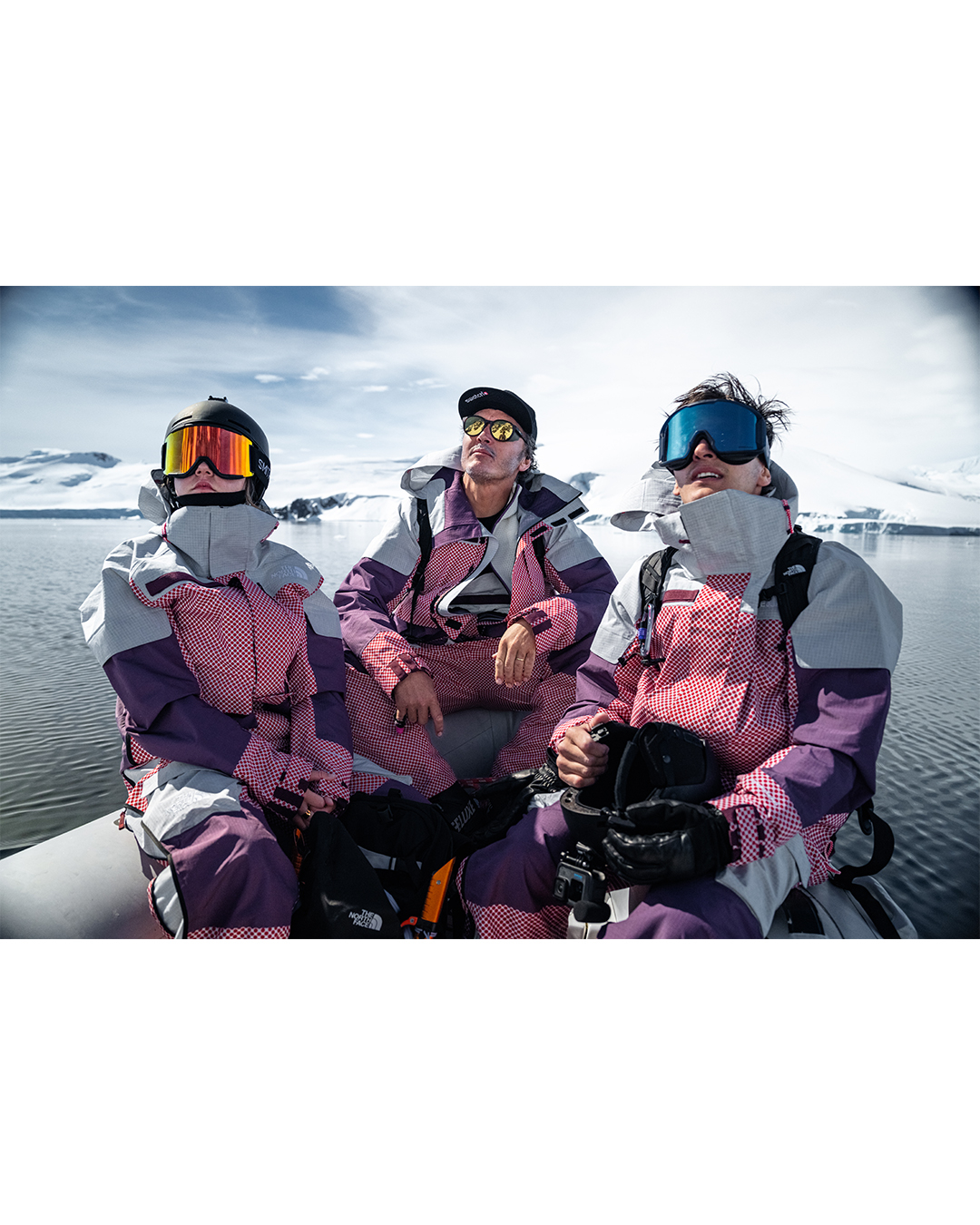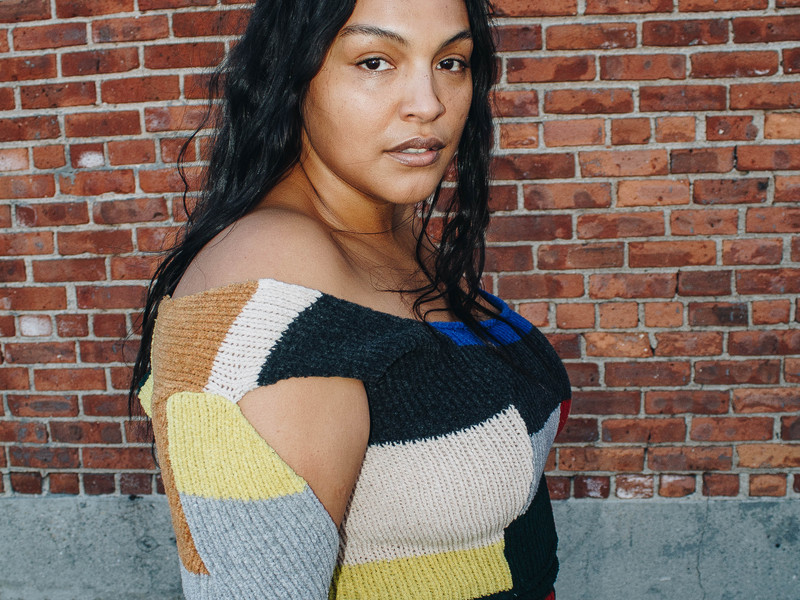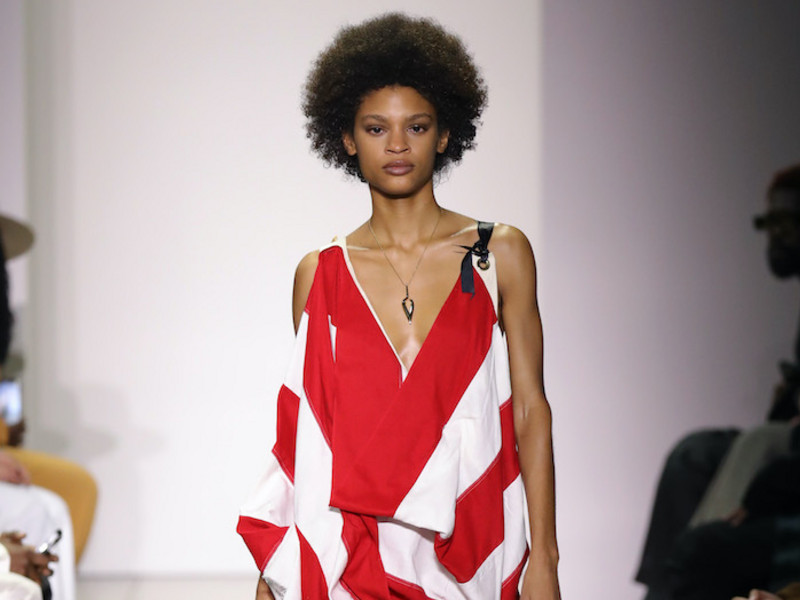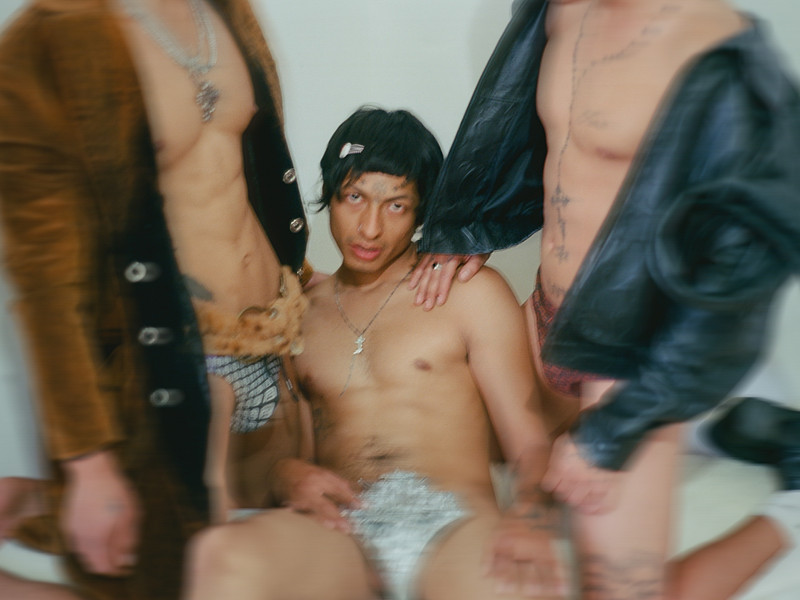Lolo x MM6
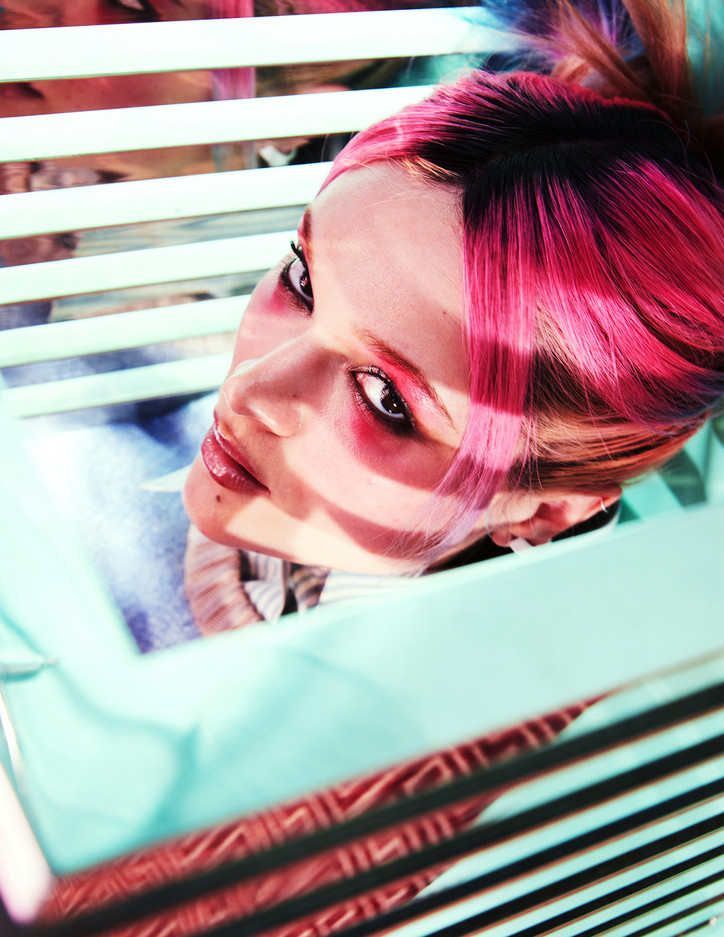
ALESSANDRA SCHADE —Tell me about your most recent song, “Scooter.” I love how playful it is, and yet biting at the same time.
LOLO ZOUAÏ — “Scooter” is one of the first songs I’ve put out with a different producer, Nömak, who I met in France. I was in France during the lockdown and it’s super strict, so there wasn’t really much to do other than ride around on an electric scooter. The subway system was a mess and nobody could get around. So, I rode this scooter to the studio. Nömak, who’s worked with Charli XCX, does a lot of futuristic music. And he was just like, ‘Why don’t we make something with your voice?’ The beat started out with me just like, making noises on a mic. And so [my voice] is pretty much everything you hear other than the bass. Then at the end my voice gets distorted—his specialty. It just came out really cool. And then the flow, I was like, ‘Let me do a full rap song with no melodies.’ I wasn’t thinking anything of it really, I was just having fun. I wasn’t thinking like, ‘This is going to be my new sound’—it was just like, ‘This is one song I want to make.’
AS — The “Scooter” music video is epic. I feel like it taps into everyone’s fantasy alter- ego of being in the public sphere and just really owning your body and space. Speaking of music videos, congratulations on your nomination for best international pop video at the UK MVA’s for your song “Galipette!”
LZ — Thank you!
AS — When you wrote that song, and during the recording process, did you have a vision for the music video, or did that come later?
LZ — It came later. I knew I wanted to show a few different sides of myself. The video shows those different versions of myself—there’s, like, the French bombshell. There’s the badass, which is the verses, and that’s the athletic me, you know, boxing underwater. There’s the play - ful one, the young girl, and you see that in the gym with the gymnast. And then there’s like the evil mastermind with all these men that I ended up like, tricking to be on my side. I think the video really represents all the characters that I’m bringing into my new music.
AS — Yes, we love a new chapter. You’re about to go on tour with Dua Lipa... How are you feel - ing? Is there one aspect of the tour that you’re most excited about?
LZ — I’m really excited to set up my visual for the stage and start something new. I feel like it’s not a rebrand, but something fresh. I haven’t toured since 2019. In 2019, I did all my visuals myself, and I think it’s just time to grow and expand my team. I’m so grateful to be able to play in front of her audience—she has such great fans, loyal and really sweet—and I think they’re going to connect to my music, as well. I think that’s why she brought me on, because she knew they would. And then there’s also Caroline Polachek, who’s so sick. It’s just this badass trio of women on stage. And people are waiting so hard to see this—it’s been so long! She announced [the tour] in 2020. So, two years later... Everyone is just going to be so happy.
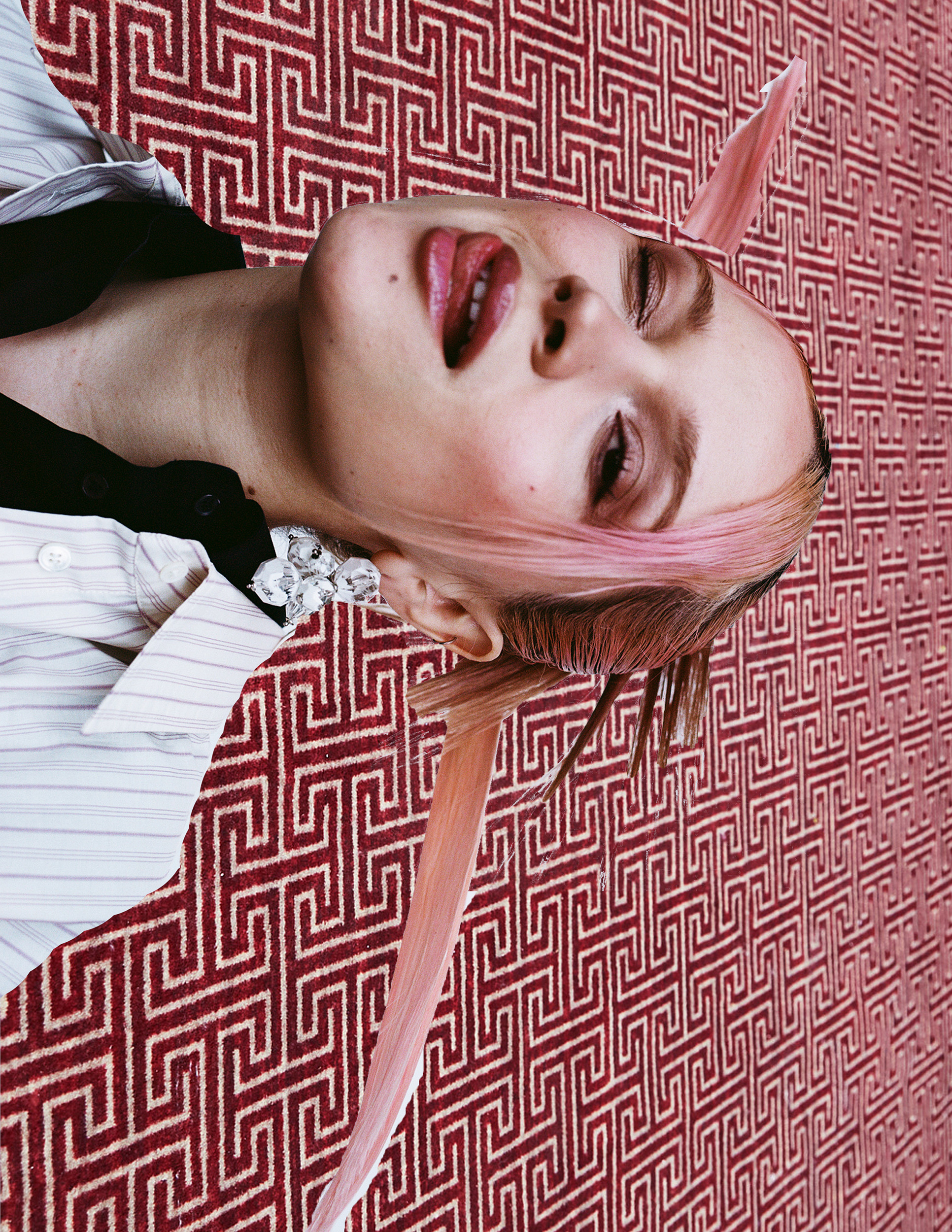
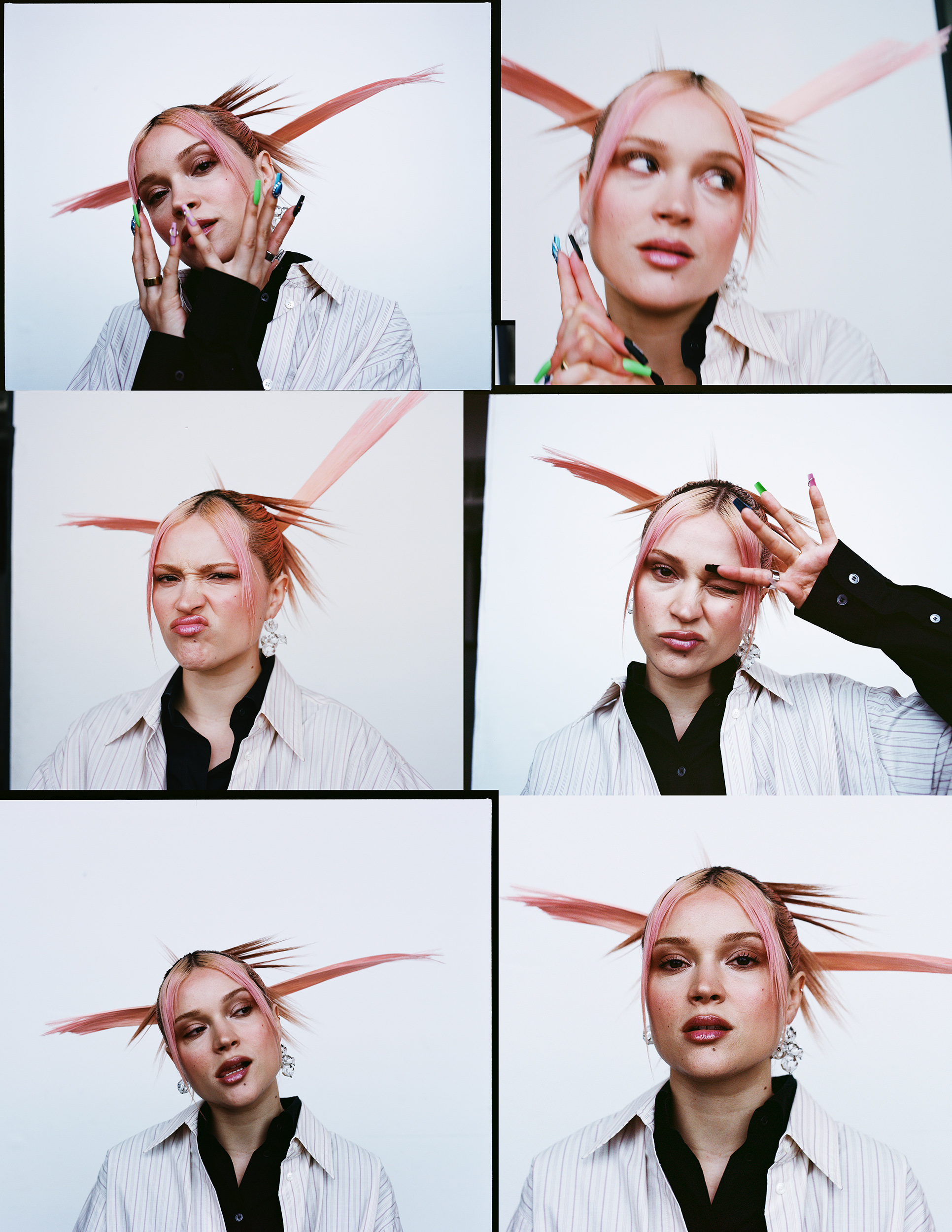
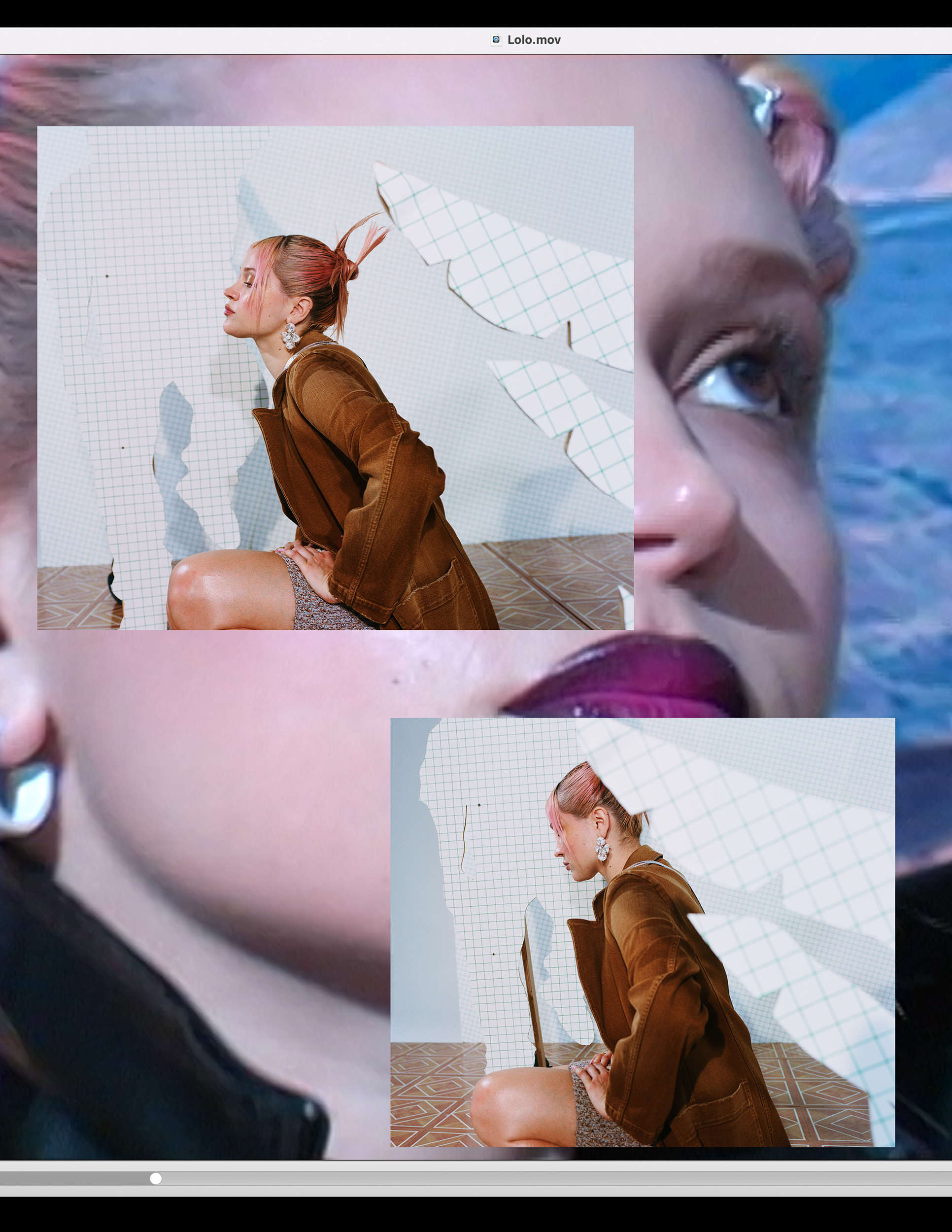
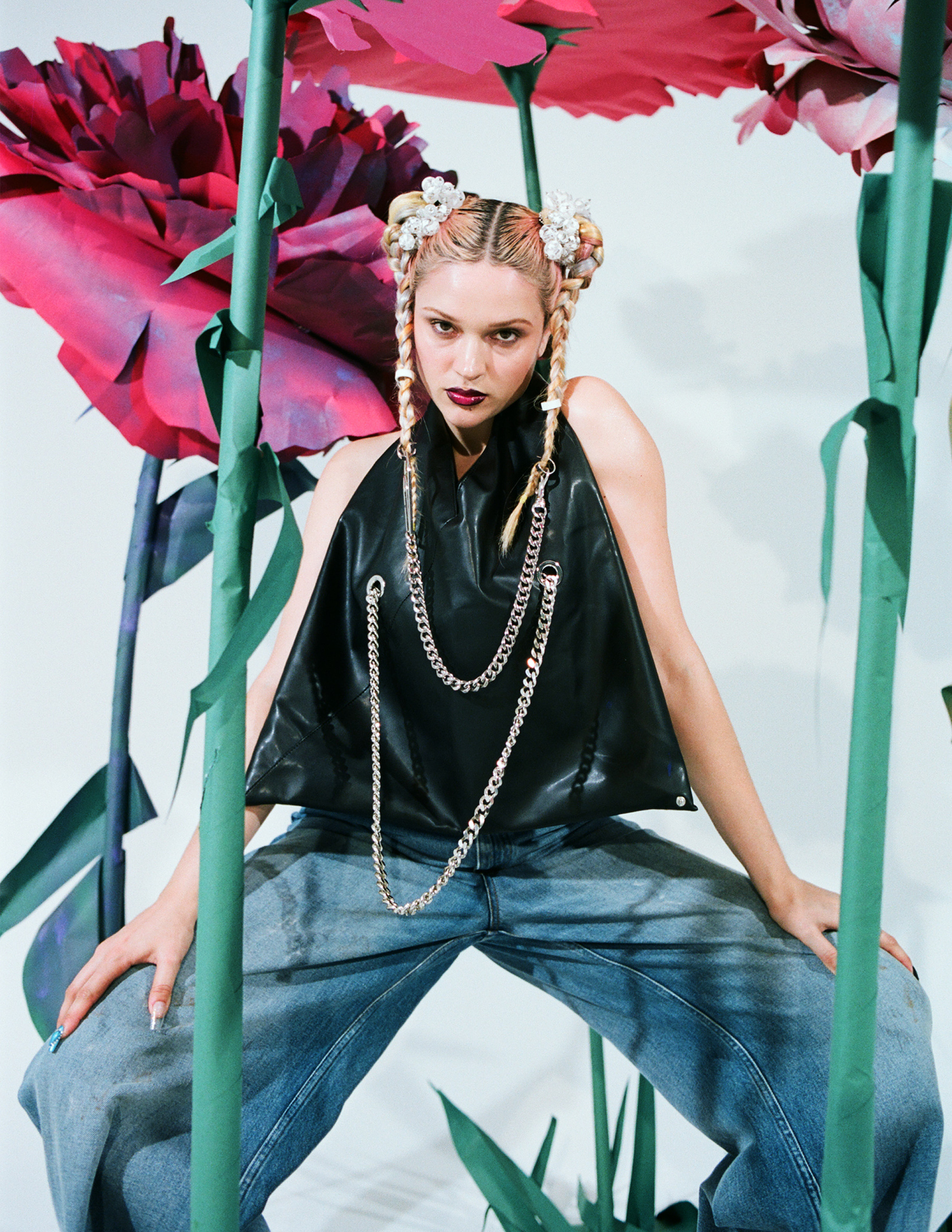
Denim, bag worn as top, bracelet, necklace and earrings worn in hair, earrings, rings MM6 MAISON MARGIELA
Shirt, denim, shoes, socks, earrings, rings MM6 MAISON MARGIELA
Jacket, earrings, bag MM6 MAISON MARGIELA
AS — So, my mom thinks you’re really cool— yes, her words—just your style and swag and everything.
LZ —I love your mom! Tell your mom I love her!
AS — What’s the most authentic part of your style?
LZ — I’m not really following any trends. I got my fashion sense from just growing up in San Francisco. I didn’t have a lot of money; I shopped at Ross. And I went to this private school—a French elementary school because my mom wanted to make sure that I learned French— and there was a scholarship thing because I was French. All my friends were rich and I could sense that there was a difference, but they were always like, ‘I love your outfit!’ I was always managing to make my own style with not a lot of money. And I still feel like I do that. I still shop at Goodwill even though, like, brands send me clothes and I could spend more money. But I have so much joy in finding pieces that are unique and that nobody else has that remind me of myself in high school. Whenever I think, ‘This is very me,’ it’s like, ‘How did I dress in high school?’ And then also just experimenting with color and short skirts and sports jackets. But I’m still evolving and I feel like my style is getting more mature as I’m getting older.
AS — Do you have one piece that’s, like, your most cherished?
LZ — I think a good leather jacket is really important. I have an issue with clothes where I have such sentimental value. So, when I wore something and I had a bad day, I don’t ever want to wear it again. It sucks. I’m like, ‘I hated myself that day,’ or like, I have my vinyl right here and this jacket that I have, I could never get rid of it. I bought it on eBay for $10.
AS — One day you can sell it for a million!
LZ — Yeah! I mean, I don’t even want to sell it. I’m a big jacket girl. Like, I have a specific jacket closet and there’s a window in it and I like to air it out to give them fresh air every so often.
AS — I feel like everyone has a revenge fantasy when they blow up. Is there anyone out there where you’re like, ‘Look at me, suck it?’
LZ — Oh man... I’ve already done things like that. I got bullied in middle school because I wore the same pink Southpole parka every day from Mervyn’s. It was my favorite jacket. I love pink. This one chick was like, ‘Why do you wear that every day?’ And I was like, ‘Why do you care?’ Yeah... That was my comeback. A few years ago, I followed her on Instagram and then, like, unfollowed her. So petty! So petty. I’m like, ‘I’m popping, you’re not, bye!’ I don’t really hold grudges, but when you’re a kid, that kind of thing really affects you. And there’s no better revenge than success. I really don’t wish harm on anybody, I just want to keep doing my thing. And I feel like if I pop off it’s because I’ve worked towards it for a really long time.
AS — You seem to have forged a career based in authenticity and definitely also, eccentricity. What do you think about autonomy of thought? How are you channeling your creativity in different and novel ways?
LZ — I think the biggest thing for me is studio time and music. Like, obviously, I’m a singer, but when I’m logged out [of social media] for three weeks and not really on Instagram, not really on anything, that’s the time when I feel the most confident. When I trust my thoughts and my vision. I don’t question it at all. I don’t let anybody’s opinion get in my way. And I really trust my lyricism and my ability to make music. I think that’s my most unique trait: seeing every - thing come together. I feel like I’m truly being myself when I’m recording, when I’m writing my music, when I’m visualizing the whole thing.
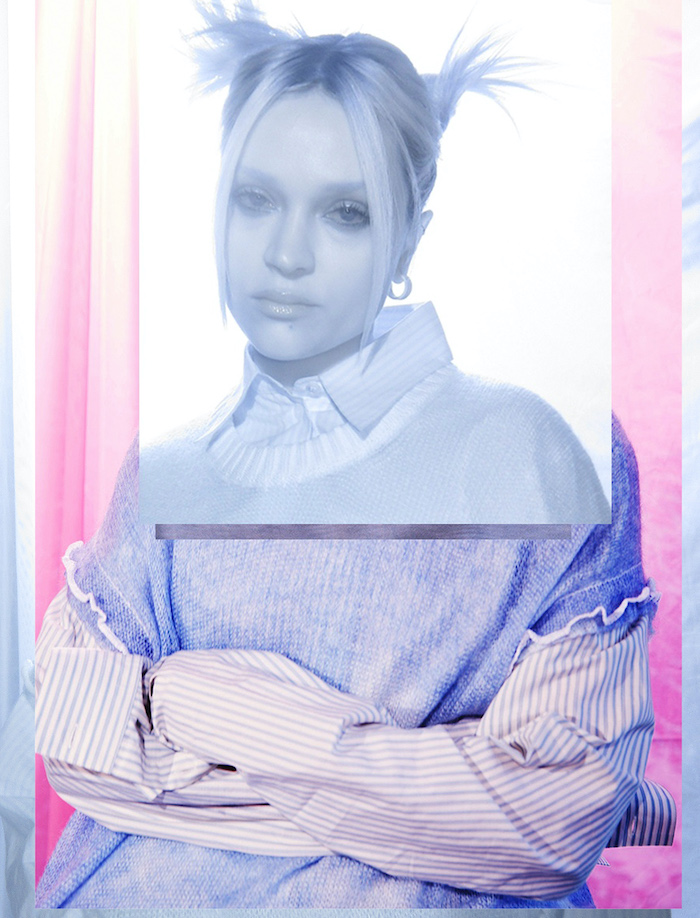

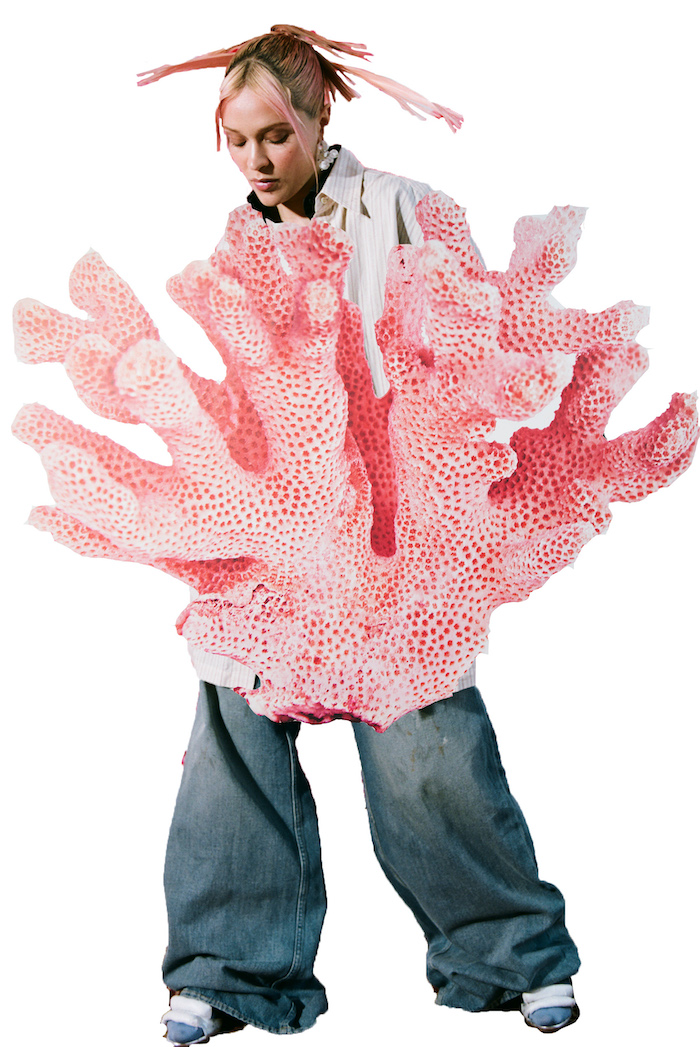
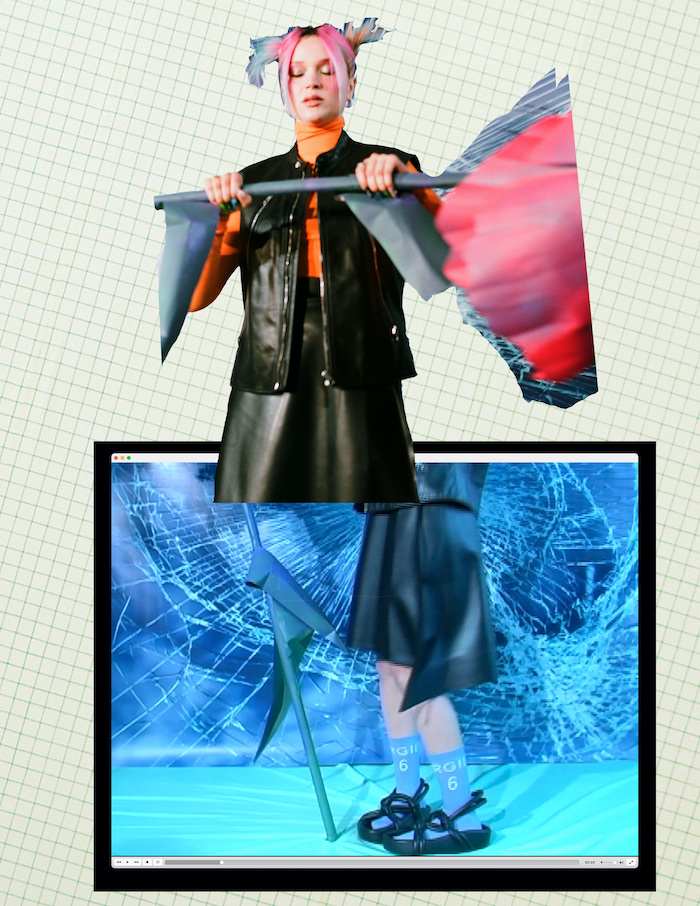
shirt, earrings, MM6 MAISON MARGIELA
Jacket, skirt, shoes, bag, necklace and earrings worn in hair, earrings, rings MM6 MAISON MARGIELA
Shirt, denim, shoes, socks, earrings, rings MM6 MAISON MARGIELA
Vest, top, skirt, socks, shoes, earrings, rings MM6 MAISON MARGIELA
AS — What’s that recording process like for you? Can you tell me about the progression from the conception of a song to its release?
LZ — I have a special place in New York where I make all my music—it’s a studio called Flux that I absolutely love—and that’s where I started High Highs to Low Lows, but it was in the basement. Now, I work on every floor. It starts with me and Stelios. We start a beat together, and then I start with the song title. I find that song titles are the most fun. So, for instance, “Caffeine” on my last album, I was like, ‘Okay, I want to write a song called caffeine. What does that mean?’ So, yeah... Start with a song title and then the production. We record melodies, try to find the best flows and melodies and cut it together. And then the hardest and the longest part is lyrics. Making sure everything fits. Once I’ve written the song, I go upstairs and I record them with my engineer and we spend probably, like, 10 hour days just record - ing and comping. I have a whole system—it’s very organized. I am not organized at all, but for my music, I’m very organized.
AS — When you’re writing your lyrics, who are you writing them for?
LZ — I’m writing it completely from how I want to express it. If it doesn’t feel like something I could say, I’m not going to say it. Like sometimes I’ve written a lyric and then I don’t want to record it. My engineer is like, ‘What’s the lyric?’ And I’m like, ‘No, nope.’ So, that means it’s not right. But then when I step out and listen to the song in its final form, I’m like, ‘Oh shit, this can mean so many things. Anyone can interpret it however.’ My song “Desert Rose” is about my family, but on TikToK recently, it’s kind of gone viral and people are like, ‘Imagine fucking to this song.’ I’m like, ‘Hmm... I don’t want to, but you sure can!’
AS — I know for a lot of artists, the past two COVID-filled years have either been really helpful for creativity or have really hindered it. How has your productivity been during these periods of social isolation or social strange - ness?
LZ — At the beginning it was really bad. I was not creative at all. I was just like, ‘What is the world anymore?’ It felt stupid to focus on my career; it just didn’t feel right to work on music. I was dealing with my own mental health and it was not good. I didn’t really make any music in 2020. The only music that I made was really, really dark. And I didn’t want to release it. It felt negative. You know, there can be sad, dark music that feels uplifting. But the music I was making felt like a burden. I just stopped work - ing on that and was just working on myself. I was in therapy. I was trying to better myself. And then I was like, ‘Alright, I’m good. I’m good off that.’ [My therapist] didn’t know what to talk about anymore. And I was like, ‘I think I’m better.’ Then I decided to go back to New York—I was quarantining in LA—and I dove back into my album process. I switched my approach completely and had a more positive outlook. Being back in New York really helped me with that. 2021 was extremely productive.
AS — You’ve lived in Brooklyn, you grew up in San Francisco, now you’re in LA. Where is home for you?
LZ — It actually feels like New York, strangely. I just moved to LA this year. I was trying to expand my social circle and my musical circle. But I just find myself going back to New York to make music and to see my best friends and to feel at home. I’m not afraid to try new places, but I don’t know if LA will ever feel like home. San Francisco, when I go there and walk around, I feel like I have a memory on every single street... But there’s not really anything for me there at the moment. Yeah, New York is my home.
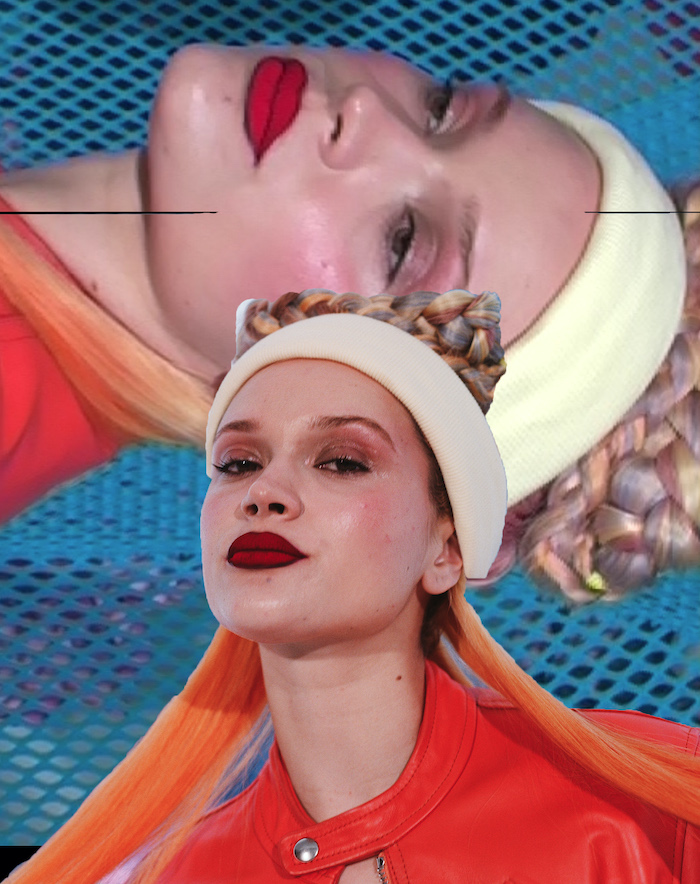
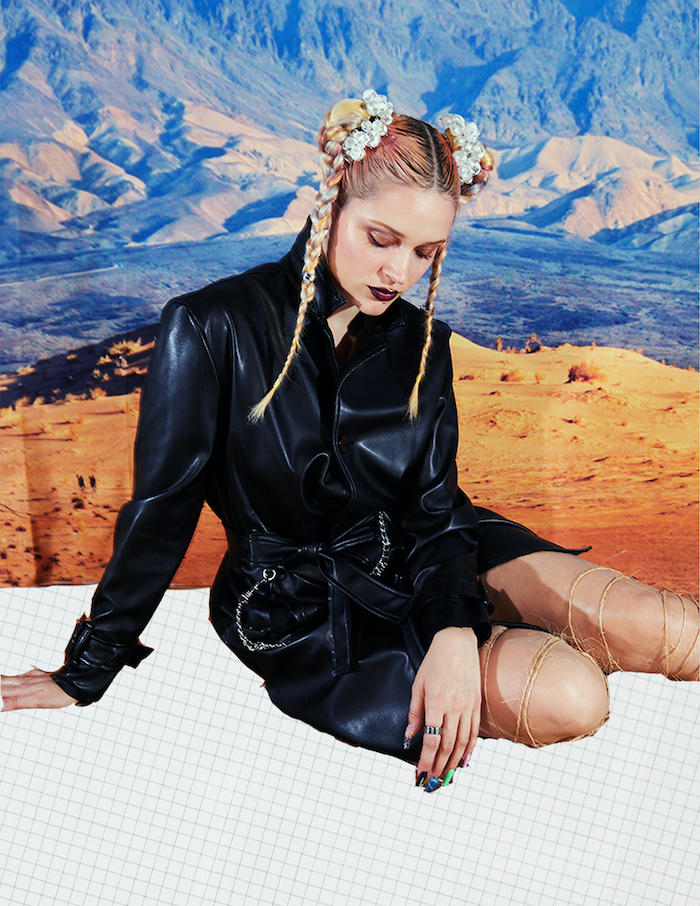
Jacket, top, headband MM6 MAISON MARGIELA
Coat, necklace and earrings worn in hair, earrings, rings MM6 MAISON MARGIELA
AS — I’ve been listening to your music a lot this week, and there seems to be a noticeable tone shift between High Highs to Low Lows, which is very sensual and dark, and your newer songs like “Scooter” and “Galipette,” which are faster, more cheerful and lighthearted. Tell me about that evolution... How has your sound trans - formed in the two years since you released High Highs?
LZ — Yeah... I think when I was making High Highs to Low Lows, I was pretty down and wanted to make something really moody and close to how I was feeling. With “Gali - pette” and “Scooter,” I just wanted to switch it up completely and do something that nobody expected from me. When an artist keeps doing the same thing over and over again, your fans might like it, but you’re not opening yourself up to new fans. You’re not opening yourself to critique. It’s taking risks, you know? And I think that’s important to do as an artist—change and switch it up and do things people aren’t expecting, even if at first it might be shock - ing. There’s definitely still a lot of that moodi - ness in my new music that I don’t think can ever go because that’s just the base of my music making—deep emotion and feeling. But I think I’ve gotten so much better at writing music... I’m so ready for everybody to hear it. ‘Cause it’s good. “Galipette” and “Scooter” were just little extremes of what I’m doing.
AS — So, what can we expect from you next year?
LZ — I don’t have a date for anything yet, but you know, it’s been three years since my last album. So, I think that’s, like, a good time period to put out something new. I’m just really into making a solid body of work. I’ve been focus - ing this whole year on being able to release something next year. A bunch of new music, new videos, campaigns. There’s so much you have to do that’s unseen for it to be seen.
AS — Is there a specific feeling or emotion that you want people to take away from your music?
LZ — I want them to feel every - thing. I think a good album should make you feel everything. It should make you feel sexy. It should make you feel sad. It should make you question life. It should make you want to dance. I think I have kind of figured all that out.
